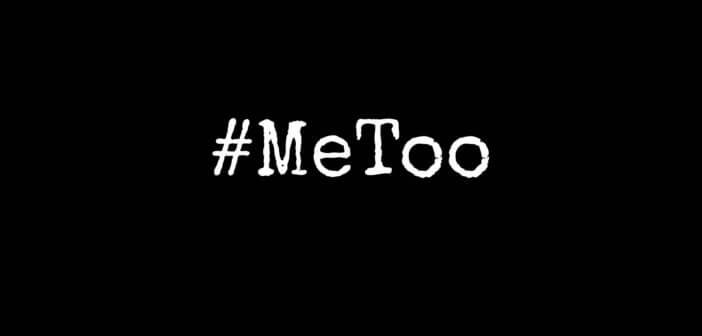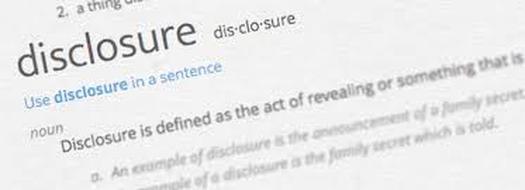
Case of the Battered Boundaries
by Deborah Brunt at KeyTruths
I could write a book about boundaries. Oh wait! Someone already did. I read the book several years ago, desperate for help.
In a nutshell, Boundaries, by Henry Cloud and John Townsend, teaches that people have boundaries, just as surely as property does.1 Property boundaries mark where one parcel ends and another begins. Personal boundaries mark where one person ends and another begins.
People dispute property boundaries all the time. People challenge personal boundaries too. Typically, the biggest disputes over personal boundaries involve two types of people:
Yet something alarming had begun to happen: I would set a healthy boundary. I would identify it clearly and with kindness: “This is what I can do, and will do gladly. This, in good conscience, I cannot.” When tested, I maintained the boundary consistently. But my boundaries were not being honored.
In every case, the boundary involved a major issue, and a spiritual one. The line drawn marked a place I could not go beyond and still remain obedient to God. But people who should have loudly encouraged my choice to follow God never stopped pushing against it. I faced instant and unrelenting pressure to recant – not just to move my boundary an inch or two, but to renounce it entirely. To stand where God had told me to stand, I had to exert an enormous amount of effort for a very long time. Read More
by Deborah Brunt at KeyTruths
I could write a book about boundaries. Oh wait! Someone already did. I read the book several years ago, desperate for help.
In a nutshell, Boundaries, by Henry Cloud and John Townsend, teaches that people have boundaries, just as surely as property does.1 Property boundaries mark where one parcel ends and another begins. Personal boundaries mark where one person ends and another begins.
People dispute property boundaries all the time. People challenge personal boundaries too. Typically, the biggest disputes over personal boundaries involve two types of people:
- those who run roughshod over the boundaries of others;
- those who let others run roughshod over them, ignoring any boundary they set.
Yet something alarming had begun to happen: I would set a healthy boundary. I would identify it clearly and with kindness: “This is what I can do, and will do gladly. This, in good conscience, I cannot.” When tested, I maintained the boundary consistently. But my boundaries were not being honored.
In every case, the boundary involved a major issue, and a spiritual one. The line drawn marked a place I could not go beyond and still remain obedient to God. But people who should have loudly encouraged my choice to follow God never stopped pushing against it. I faced instant and unrelenting pressure to recant – not just to move my boundary an inch or two, but to renounce it entirely. To stand where God had told me to stand, I had to exert an enormous amount of effort for a very long time. Read More

Caught in the Spotlight: Christian Leaders Who Mishandle Sexual Abuse Disclosures
The dark strategy of some leaders when confronted with abuse
by Boz Tchividjian
I have often talked about the deceitful, but all-too-successful, ways sex offenders in faith communities act when confronted with abuse allegations. Tragically, sex offenders are not the only ones who deceive when confronted with abuse disclosures. Too often, leaders of faith institutions respond similarly when confronted with the mishandling of sexual abuse disclosures. Instead of acknowledging the failure and grieving over the pain the institution has caused an already traumatized victim, some leaders immediately move into self-protection mode and will stop at almost nothing in shifting the focus away from their own reprehensible failings in order to protect personal and organizational reputations.
A spotlight is switched on whenever an abuse survivor steps forward to tell others how institutional leaders mishandled their sexual abuse disclosure. Spotlights that shine light into dark places are seldom welcomed by those responsible for the darkness. These spotlights come in many different forms and sizes. Some are media reports or articles, while others take the form of lawsuits and criminal cases. In recent years, many survivors have been empowered to turn a blog or a Facebook page into bright and stubborn spotlight.
A few years ago, I learned of a faith institution whose leaders had failed miserably when learning that children under its care had been sexually and physically abused. Years later, a handful of these children—who were now adults— privately confronted the leaders about how their failure to respond had devastated the lives of so many who had been abused. The leaders expressed concern and promised to “look into it”. After two years of empty lip service, the survivors realized that the leaders had little or no plans to do anything. The sad reality was that as long as these conversations remained private, many of the survivors believed that the leaders had nothing to lose by dragging it out as long as possible with the hope that they would simply go away. Instead of continuing the endless and fruitless private dialogue, these brave young adults decided to turn on a spotlight in the form of a public blog that exposed the horrors committed by offenders and the repeated failures by the institutional leaders to properly respond to these crimes. Over time, this spotlight grew brighter as it reached more and more people around the world. Suddenly, empty lip service was no longer a viable response as the institution no longer controlled a private narrative.
Read More
The dark strategy of some leaders when confronted with abuse
by Boz Tchividjian
I have often talked about the deceitful, but all-too-successful, ways sex offenders in faith communities act when confronted with abuse allegations. Tragically, sex offenders are not the only ones who deceive when confronted with abuse disclosures. Too often, leaders of faith institutions respond similarly when confronted with the mishandling of sexual abuse disclosures. Instead of acknowledging the failure and grieving over the pain the institution has caused an already traumatized victim, some leaders immediately move into self-protection mode and will stop at almost nothing in shifting the focus away from their own reprehensible failings in order to protect personal and organizational reputations.
A spotlight is switched on whenever an abuse survivor steps forward to tell others how institutional leaders mishandled their sexual abuse disclosure. Spotlights that shine light into dark places are seldom welcomed by those responsible for the darkness. These spotlights come in many different forms and sizes. Some are media reports or articles, while others take the form of lawsuits and criminal cases. In recent years, many survivors have been empowered to turn a blog or a Facebook page into bright and stubborn spotlight.
A few years ago, I learned of a faith institution whose leaders had failed miserably when learning that children under its care had been sexually and physically abused. Years later, a handful of these children—who were now adults— privately confronted the leaders about how their failure to respond had devastated the lives of so many who had been abused. The leaders expressed concern and promised to “look into it”. After two years of empty lip service, the survivors realized that the leaders had little or no plans to do anything. The sad reality was that as long as these conversations remained private, many of the survivors believed that the leaders had nothing to lose by dragging it out as long as possible with the hope that they would simply go away. Instead of continuing the endless and fruitless private dialogue, these brave young adults decided to turn on a spotlight in the form of a public blog that exposed the horrors committed by offenders and the repeated failures by the institutional leaders to properly respond to these crimes. Over time, this spotlight grew brighter as it reached more and more people around the world. Suddenly, empty lip service was no longer a viable response as the institution no longer controlled a private narrative.
Read More

How Churches Elevate and Protect Abusive Pastors
A psychologist explores the power dynamics that help turn shepherds into wolves.
Interview by Tim Hein
The seduction of power, both individual and institutional, is a tale as old as time. Within the church, the misuse and abuse of authority has taken a devastating toll in broken lives and congregations. Yet the true nature of power often goes unacknowledged and unexplored. In Redeeming Power: Understanding Authority and Abuse in the Church, psychologist Diane Langberg brings several decades of experience counseling clergy leaders and trauma survivors to this topic. Tim Hein, a pastor and lecturer in Australia and the author of Understanding Sexual Abuse: A Guide for Ministry Leaders and Survivors, spoke with Langberg about why pastors and ministry leaders sometimes feed on their flocks.
The word power is a contested one in our culture. How do you define it?
Basically, power is influence—the capacity to produce an effect. If I walk up to you, and I’m bigger than you, and I push you down, then I have done something that had an effect. And everybody has some sort of influence—even an infant. If you bring a baby home from the hospital and it starts screaming at 3 a.m., what do you do? You get up!
This is part of what it means to be God’s image-bearers. He has told us, Rule! Rule over the earth. That’s a power word. As sinners, of course, we’ve ruined this like we’ve ruined everything else. But exercising power is still part of our essence, even if individuals and systems are prone to misusing it.
If all of us wield power and influence of some sort, then why are Christian leaders, in your view, especially susceptible to becoming power-abusers? What do they fail to appreciate about the power they have? Read More
A psychologist explores the power dynamics that help turn shepherds into wolves.
Interview by Tim Hein
The seduction of power, both individual and institutional, is a tale as old as time. Within the church, the misuse and abuse of authority has taken a devastating toll in broken lives and congregations. Yet the true nature of power often goes unacknowledged and unexplored. In Redeeming Power: Understanding Authority and Abuse in the Church, psychologist Diane Langberg brings several decades of experience counseling clergy leaders and trauma survivors to this topic. Tim Hein, a pastor and lecturer in Australia and the author of Understanding Sexual Abuse: A Guide for Ministry Leaders and Survivors, spoke with Langberg about why pastors and ministry leaders sometimes feed on their flocks.
The word power is a contested one in our culture. How do you define it?
Basically, power is influence—the capacity to produce an effect. If I walk up to you, and I’m bigger than you, and I push you down, then I have done something that had an effect. And everybody has some sort of influence—even an infant. If you bring a baby home from the hospital and it starts screaming at 3 a.m., what do you do? You get up!
This is part of what it means to be God’s image-bearers. He has told us, Rule! Rule over the earth. That’s a power word. As sinners, of course, we’ve ruined this like we’ve ruined everything else. But exercising power is still part of our essence, even if individuals and systems are prone to misusing it.
If all of us wield power and influence of some sort, then why are Christian leaders, in your view, especially susceptible to becoming power-abusers? What do they fail to appreciate about the power they have? Read More
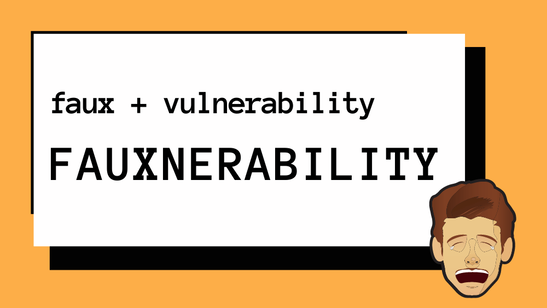
'Fauxnerability' A Growing Phenomenon Among Narcissistic Pastors, Leaders
by Kylie Beach
Fauxnerability’ – as in, faux (not genuine) vulnerability – is a word Chuck DeGroat coined during the writing process of his book When Narcissism Comes to Church: Healing Your Community From Emotional and Spiritual Abuse.
“It speaks to a growing phenomenon I’ve seen among narcissistic pastors and leaders who may know some psychological language or talk about their personality type or even see a therapist – but who manifest a kind of false vulnerability,” he explains.
DeGroat is Professor of Counselling and Christian Spirituality at Western Theological Seminary in Michigan, USA. He is also a licensed therapist and an ordained Reformed Church minister. Speaking to Eternity on the release of his book last year, he explained that the common psychological definition of narcissism includes grandiosity, a lack of empathy, and impairments of intimacy and identity, among others.
But while DeGroat said that definition is “a fair place to start,” he also noted “narcissism comes in a number of different guises, which sometimes look less grandiose but are no less sinister”. Read More
by Kylie Beach
Fauxnerability’ – as in, faux (not genuine) vulnerability – is a word Chuck DeGroat coined during the writing process of his book When Narcissism Comes to Church: Healing Your Community From Emotional and Spiritual Abuse.
“It speaks to a growing phenomenon I’ve seen among narcissistic pastors and leaders who may know some psychological language or talk about their personality type or even see a therapist – but who manifest a kind of false vulnerability,” he explains.
DeGroat is Professor of Counselling and Christian Spirituality at Western Theological Seminary in Michigan, USA. He is also a licensed therapist and an ordained Reformed Church minister. Speaking to Eternity on the release of his book last year, he explained that the common psychological definition of narcissism includes grandiosity, a lack of empathy, and impairments of intimacy and identity, among others.
But while DeGroat said that definition is “a fair place to start,” he also noted “narcissism comes in a number of different guises, which sometimes look less grandiose but are no less sinister”. Read More

The Abusers We Have Not Seen
by Deborah Brunt - KeyTruths
From birth, I lived with exploitation and rejection, and did not know it. Then, 17 years ago, full-blown abuse erupted against me “out of nowhere.” As I began to see, and to say what I was seeing, that initial abuse precipitated more abuse in a way I would never have dreamed.
One reason I experienced such ongoing, mushrooming trauma: I had not yet learned to recognize untrustworthy people. I hadn’t yet seen deeply enough into my past to realize why seemingly good Christian people could fool me every time.
But also the abuse mushroomed because I lived, worked and breathed inside more than one abusive system. These systems gave my abusers a host of unwitting allies – and free rein to batter me again and again.
Read More
by Deborah Brunt - KeyTruths
From birth, I lived with exploitation and rejection, and did not know it. Then, 17 years ago, full-blown abuse erupted against me “out of nowhere.” As I began to see, and to say what I was seeing, that initial abuse precipitated more abuse in a way I would never have dreamed.
One reason I experienced such ongoing, mushrooming trauma: I had not yet learned to recognize untrustworthy people. I hadn’t yet seen deeply enough into my past to realize why seemingly good Christian people could fool me every time.
But also the abuse mushroomed because I lived, worked and breathed inside more than one abusive system. These systems gave my abusers a host of unwitting allies – and free rein to batter me again and again.
Read More

This is How We Let Abuse Thrive
by D.L. Mayfield
IN THE PAST two years, prominent pastors and church leaders—including Willow Creek’s Bill Hybels, the Village Church’s Matt Chandler, and Southwestern Baptist Theological Seminary’s Paige Patterson—have been accused of perpetrating or enabling abuse within their large institutions. By the time this story goes to print, another once-trusted person or institution will likely be proven to be corrupt, unreliable, and abusive.
While he was a youth pastor, Wade Mullen heard many of these hard stories from the teens and families he served. But when Mullen reported this abuse to his supervisor in accordance with state protocols, he was shocked when the church leadership dismissed it out of fear for what could happen to the institution. “Do you realize what reporting could do to that family? To this church?” asked a pastor. “These kids could take us all down with their storytelling.”
Despite this resistance from church leadership, Mullen reported the abuse to the appropriate civil authorities. After working for months to make clear why following reporting protocols was important for the safety of the vulnerable, he eventually resigned from the church. Read More
by D.L. Mayfield
IN THE PAST two years, prominent pastors and church leaders—including Willow Creek’s Bill Hybels, the Village Church’s Matt Chandler, and Southwestern Baptist Theological Seminary’s Paige Patterson—have been accused of perpetrating or enabling abuse within their large institutions. By the time this story goes to print, another once-trusted person or institution will likely be proven to be corrupt, unreliable, and abusive.
While he was a youth pastor, Wade Mullen heard many of these hard stories from the teens and families he served. But when Mullen reported this abuse to his supervisor in accordance with state protocols, he was shocked when the church leadership dismissed it out of fear for what could happen to the institution. “Do you realize what reporting could do to that family? To this church?” asked a pastor. “These kids could take us all down with their storytelling.”
Despite this resistance from church leadership, Mullen reported the abuse to the appropriate civil authorities. After working for months to make clear why following reporting protocols was important for the safety of the vulnerable, he eventually resigned from the church. Read More

If I Were an Abuser, What Church Would I Want to Attend?
by Dr. Nancy Murphy
I recently presented training on Domestic Violence for over 100 pastors. They paid to attend and they stayed for 6.5 hours. It was what this woman’s heart dreamed of. Faith leaders taking time to think through issues of power and control, safety and accountability.
I left deeply concerned.
Rather than feeling as if I had made headway in helping ‘the church’ think through ways to help a victim in an abusive marriage or perpetrator looking to repent, or remain using abusive tactics, the focus of the training pivoted when one of the pastors asked, “What do you do when a woman lies?” The question deserved curiosity. We all know that by virtue of gender, all women are not sugar and spice and everything nice, so I asked him if he could give me an example.
“Yes”, he exclaimed and stood to his feet. “A woman came to my office to tell me she was being beaten by her husband.” He hiked up his pants to ensure his shirt was neatly tucked into his jeans, displaying a large belt buckle that seemed to bring him great pleasure. He looked down at it briefly, looping his thumbs into his belt and then filled us in as to what his response to her had been. With a bit of flair, he announced, “Now, I’m a minister of the gospel of the Lord Jesus Christ. I don’t tolerate abuse in my church. So I went over to confront her husband and he told me he had NEVER beaten her. He might backhand her from time to time, but he had never beaten her.” He looked directly at me and shaking his head back and forth said, “So what do you do when a woman lies?”
Before I could catch my breath, a rumbled response moved throughout the room, “Yeah, what do you do about that?” “Yeah, what do you do about that?’ Yeah, what do you do about that?”
In my broken humanity, I considered stepping forward and backhanding him, but knowing the learning from that was not what I ultimately wanted, reconsidered.
Read more
by Dr. Nancy Murphy
I recently presented training on Domestic Violence for over 100 pastors. They paid to attend and they stayed for 6.5 hours. It was what this woman’s heart dreamed of. Faith leaders taking time to think through issues of power and control, safety and accountability.
I left deeply concerned.
Rather than feeling as if I had made headway in helping ‘the church’ think through ways to help a victim in an abusive marriage or perpetrator looking to repent, or remain using abusive tactics, the focus of the training pivoted when one of the pastors asked, “What do you do when a woman lies?” The question deserved curiosity. We all know that by virtue of gender, all women are not sugar and spice and everything nice, so I asked him if he could give me an example.
“Yes”, he exclaimed and stood to his feet. “A woman came to my office to tell me she was being beaten by her husband.” He hiked up his pants to ensure his shirt was neatly tucked into his jeans, displaying a large belt buckle that seemed to bring him great pleasure. He looked down at it briefly, looping his thumbs into his belt and then filled us in as to what his response to her had been. With a bit of flair, he announced, “Now, I’m a minister of the gospel of the Lord Jesus Christ. I don’t tolerate abuse in my church. So I went over to confront her husband and he told me he had NEVER beaten her. He might backhand her from time to time, but he had never beaten her.” He looked directly at me and shaking his head back and forth said, “So what do you do when a woman lies?”
Before I could catch my breath, a rumbled response moved throughout the room, “Yeah, what do you do about that?” “Yeah, what do you do about that?’ Yeah, what do you do about that?”
In my broken humanity, I considered stepping forward and backhanding him, but knowing the learning from that was not what I ultimately wanted, reconsidered.
Read more
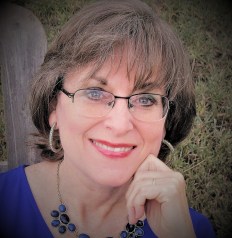
“Loyalty” is not a Christian virtue
by Rebecca Davis
When I was a young graduate assistant working at Bob Jones University (learning publishing at BJU Press), like all the other employees I was given certain odious assignments to fulfill each semester, such as monitoring the “dating parlor” for a couple of hours on a Sunday.
One Sunday after I had finished that odious assignment, my replacement came along, a BJU lifer, Miss Potts. She asked me if I was going to obediently head on over to Vespers (the University’s drama program presented on Sunday afternoons).
“No,” I responded somewhat defiantly. “I’m going to church.”
Miss Potts was an old Southern lady with an absolutely perfect Southern drawl.
“The Univuhsity,” she said, “would want you to go to Vespuhs.”
And there a loyal generation and a . . . different . . . generation went head to head with the loyalty issue.
What does the entity-without-a-face, “the Univuhsity,” want me to do?
“Well,” I said, hoisting my bookbag to my shoulder, “I think the Lord would want me to go to church.”
And I left before she could respond again.
Now my point here isn’t whether or not going to church was the absolute best thing I could have done with my time at that moment. (As far as I know now, it still was.)
It’s a question of loyalty.
What in the world is it, why is it so touted in Christian circles, and why am I saying it’s not Christian? (Read More)
by Rebecca Davis
When I was a young graduate assistant working at Bob Jones University (learning publishing at BJU Press), like all the other employees I was given certain odious assignments to fulfill each semester, such as monitoring the “dating parlor” for a couple of hours on a Sunday.
One Sunday after I had finished that odious assignment, my replacement came along, a BJU lifer, Miss Potts. She asked me if I was going to obediently head on over to Vespers (the University’s drama program presented on Sunday afternoons).
“No,” I responded somewhat defiantly. “I’m going to church.”
Miss Potts was an old Southern lady with an absolutely perfect Southern drawl.
“The Univuhsity,” she said, “would want you to go to Vespuhs.”
And there a loyal generation and a . . . different . . . generation went head to head with the loyalty issue.
What does the entity-without-a-face, “the Univuhsity,” want me to do?
“Well,” I said, hoisting my bookbag to my shoulder, “I think the Lord would want me to go to church.”
And I left before she could respond again.
Now my point here isn’t whether or not going to church was the absolute best thing I could have done with my time at that moment. (As far as I know now, it still was.)
It’s a question of loyalty.
What in the world is it, why is it so touted in Christian circles, and why am I saying it’s not Christian? (Read More)
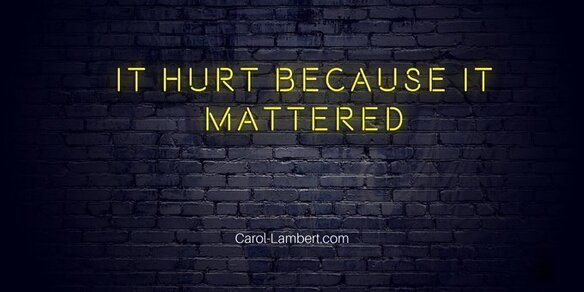
Generating Fear: Words Become Weapons
Shaming attacks create crippling fear when we need confidence and courage
by Carol Lambert
At a recent workshop that addressed communication, one guideline stuck out: “It’s okay to disagree; not okay to blame, shame or attack (others).”
In our current political arena, we are subjected to seeing and hearing many negative, perhaps outrageous, examples of how we talk to one another and about one another. Recent disagreements or actions taken have incited a huge negative reaction that led to intensely humiliating and shaming others for their behavior. What causes this type of “hateful” response? It’s often deeply held shame that, without being addressed, can make the “attacking” reaction unlikely to change. However, this type of reaction can lose its power if recipients are able to remain true to their own beliefs and stay strong.
Anger Is Not the Problem—It’s Shame
When a person cannot tolerate being confronted and experiences even mild slights or disagreements as personal attacks, they often react out of anger and even rage. Anger, in this context, is defensive and it’s usually a defense against deeply felt shame.
When a person feels shamed by the words or behavior of others, and is compelled to discredit or demolish the messenger, they are responding to something old. The shame in this context comes out of an unhealed hurt often during childhood that gets deeply triggered at current moments of perceived “attacks.” The powerful unresolved influence from the past is what fuels the intense angry overreaction. In essence, the person is reacting from a past injurious attack and often not the current situation. The revealing sign is that the behavior appears way over the top and out of the context in which it’s taking place. Read more
Shaming attacks create crippling fear when we need confidence and courage
by Carol Lambert
At a recent workshop that addressed communication, one guideline stuck out: “It’s okay to disagree; not okay to blame, shame or attack (others).”
In our current political arena, we are subjected to seeing and hearing many negative, perhaps outrageous, examples of how we talk to one another and about one another. Recent disagreements or actions taken have incited a huge negative reaction that led to intensely humiliating and shaming others for their behavior. What causes this type of “hateful” response? It’s often deeply held shame that, without being addressed, can make the “attacking” reaction unlikely to change. However, this type of reaction can lose its power if recipients are able to remain true to their own beliefs and stay strong.
Anger Is Not the Problem—It’s Shame
When a person cannot tolerate being confronted and experiences even mild slights or disagreements as personal attacks, they often react out of anger and even rage. Anger, in this context, is defensive and it’s usually a defense against deeply felt shame.
When a person feels shamed by the words or behavior of others, and is compelled to discredit or demolish the messenger, they are responding to something old. The shame in this context comes out of an unhealed hurt often during childhood that gets deeply triggered at current moments of perceived “attacks.” The powerful unresolved influence from the past is what fuels the intense angry overreaction. In essence, the person is reacting from a past injurious attack and often not the current situation. The revealing sign is that the behavior appears way over the top and out of the context in which it’s taking place. Read more

When We Talk About Sexual Abuse
by Maureen Farrell Garcia
As usually happens after some sort of sexual abuse is revealed in our Christian communities, many take to social media and the internet in an attempt to separate the facts from fictions and to express their opinions and emotions in response. While this can be very helpful for those of us who have been comforted and affirmed by online communities, it can also be a nightmare. And, that’s what the last few weeks with all the Duggar family and Jordan Root coverage have been: a nightmare.
And like a nightmare, it all feels very surreal and yes, threatening, to those of us who have survived abusive relationships and communities. Now for me, these feelings are not evoked from the facts that abuse has occurred in Christian communities. God orchestrated my life ensuring that I received a thorough education on sex offenders, so I no longer naively expect churches to be immune to such horrors. What freaks me out are the responses to such abuse. My fear stems from the blatant ignorance and incompetence justified with biblical & manipulative rhetoric that is advanced by well intentioned Christians as well as Christians with darker motives.
So, let’s get a few things out in the open. Then perhaps we can finally move this conversation forward in some kind of helpful manner.
The Offender is Forgiven, Redeemed, and has Received God’s Grace
This is one of the most common refrains I hear when educating others about abuse and sex offenders. Many Christians rush to affirm that the “repentant” one has been forgiven. The majority of Christian victim advocates and I are not questioning whether God’s grace applies to Josh Duggar or Jordan Root or my ex-husband or any other sexual offender. In fact as Christians we assume God forgives.
Again, as Christians we explicitly affirm and believe in God’s radical forgiveness. I have no doubt God can, and/or has, forgiven my abusers. The question, at least for me, is not whether or not God forgives them. I know God forgives. Don’t waste my time, or others, trying to enter the conversation with something we all affirm as Christians: that God can forgive his creations the most reprehensible actions. We agree. Let’s move on.
Read More
by Maureen Farrell Garcia
As usually happens after some sort of sexual abuse is revealed in our Christian communities, many take to social media and the internet in an attempt to separate the facts from fictions and to express their opinions and emotions in response. While this can be very helpful for those of us who have been comforted and affirmed by online communities, it can also be a nightmare. And, that’s what the last few weeks with all the Duggar family and Jordan Root coverage have been: a nightmare.
And like a nightmare, it all feels very surreal and yes, threatening, to those of us who have survived abusive relationships and communities. Now for me, these feelings are not evoked from the facts that abuse has occurred in Christian communities. God orchestrated my life ensuring that I received a thorough education on sex offenders, so I no longer naively expect churches to be immune to such horrors. What freaks me out are the responses to such abuse. My fear stems from the blatant ignorance and incompetence justified with biblical & manipulative rhetoric that is advanced by well intentioned Christians as well as Christians with darker motives.
So, let’s get a few things out in the open. Then perhaps we can finally move this conversation forward in some kind of helpful manner.
The Offender is Forgiven, Redeemed, and has Received God’s Grace
This is one of the most common refrains I hear when educating others about abuse and sex offenders. Many Christians rush to affirm that the “repentant” one has been forgiven. The majority of Christian victim advocates and I are not questioning whether God’s grace applies to Josh Duggar or Jordan Root or my ex-husband or any other sexual offender. In fact as Christians we assume God forgives.
Again, as Christians we explicitly affirm and believe in God’s radical forgiveness. I have no doubt God can, and/or has, forgiven my abusers. The question, at least for me, is not whether or not God forgives them. I know God forgives. Don’t waste my time, or others, trying to enter the conversation with something we all affirm as Christians: that God can forgive his creations the most reprehensible actions. We agree. Let’s move on.
Read More
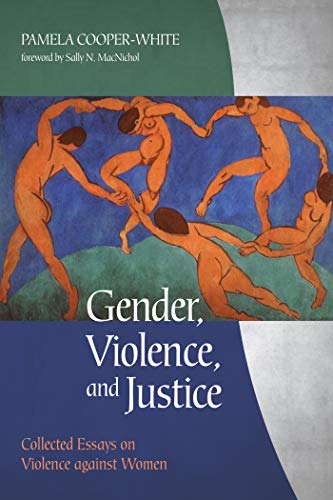
Gender, Violence, and Justice: Collected Essays on Violence against Women
by Pamela Cooper-White (Cascade/Wipf & Stock, 2019).
Chapter 7 - Sexual Exploitation and Other Boundary Violations in Pastoral Ministries
Section: Consulting to congregations
There has been increasing recognition among clergy and judicatory executives that congregations are also traumatized by clergy sexual misconduct. It is now generally understood that when congregations are not offered an intentional, well-planned healing process, they continue to carry wounds that can affect future generations of future clergy and lay members, and are likely to pose significant if unspoken obstacles to effective ministry. Congregations are groups or systems which, just like individuals, have conscious as well as unconscious dynamics. Traumatic events in the life of a congregation may be "forgotten," initially because of systemic taboos against telling the truth about what happened. Later, even if every person who was a member at the time the trauma has moved away or died, the post-traumatic dynamics persist. Old patterns of relating, of behavior, speech and silence, are taken up by new members without a conscious understanding of their origins. Like families with multi-generational patterns of incest, congregational dynamics can also be governed by a sexual abuse secret that is hidden from conscious awareness but can be recognized by the symptoms it produces.
Experts have identified a number of indicators of congregational symptoms in the aftermath of clergy sexual misconduct[i]
Read more
by Pamela Cooper-White (Cascade/Wipf & Stock, 2019).
Chapter 7 - Sexual Exploitation and Other Boundary Violations in Pastoral Ministries
Section: Consulting to congregations
There has been increasing recognition among clergy and judicatory executives that congregations are also traumatized by clergy sexual misconduct. It is now generally understood that when congregations are not offered an intentional, well-planned healing process, they continue to carry wounds that can affect future generations of future clergy and lay members, and are likely to pose significant if unspoken obstacles to effective ministry. Congregations are groups or systems which, just like individuals, have conscious as well as unconscious dynamics. Traumatic events in the life of a congregation may be "forgotten," initially because of systemic taboos against telling the truth about what happened. Later, even if every person who was a member at the time the trauma has moved away or died, the post-traumatic dynamics persist. Old patterns of relating, of behavior, speech and silence, are taken up by new members without a conscious understanding of their origins. Like families with multi-generational patterns of incest, congregational dynamics can also be governed by a sexual abuse secret that is hidden from conscious awareness but can be recognized by the symptoms it produces.
Experts have identified a number of indicators of congregational symptoms in the aftermath of clergy sexual misconduct[i]
- anger that is displaced toward other authority figures such as congregation staff members, judicatory executives, interims and "after-pastors," and even toward lay leadership;
- reactivity in the form of making unwise or hasty decisions;
- a pattern of divisiveness within the congregation;
- a sense of depression, malaise, and apathy among members toward routine tasks and programs;
- excessive preoccupation with caring for the offending clergyperson (sometimes even after he has left the congregation) without similar apparent regard for other injured parties;
- a loss of members and/or income which does not resolve in the usual "recovery period" of 6-12 months for these losses;
- a climate of gossip and conjecture resulting from understandable attempts to find out "what happened?";
- or unconscious embarrassment, leading to isolation from the surrounding community and from other congregations;
- "sexualization" of the congregation, in which undue attention is given to matters of human sexuality;
- "symbolic fights," (Hopkins, 1993) congregational conflicts that symbolize the pain (for example, conflicts about the priority of children's ministries, about job/role descriptions, about the external appearance of the congregation's building, about the newsletter and other means of communication, about "boundaries" such as keys to the building, office hours, outreach, etc.;
- nostalgia for the "good old days" or idealization of previous clergy; suspicion or resistance to new ideas, programs, or forms of ministry;
- despair about the future of the congregation, resulting in fear of making commitments or taking risks.
Read more
Reclaim Your Life Post-Abuse with Bob and Polly Hamp and Natalie Hoffman

Abuse Hidden in Plain Sight
Think Differently Academy
A significant obstacle for those who say they “are opposed to abuse” and “want to stand up for victims” is that many, yes, even many trained professionals don’t recognize abuse when it is happening right in front of them. It is hidden in plain sight. You must know what to look for.
The hidden dynamic is the inappropriate assignment of responsibility.
A. The abuser makes the victim responsible to carry the weight of their impulses (anger, sex, power…)
B. The abuser then blames the victim for the abuser’s behavior
C. The abuser makes the victim responsible to protect them (Threats, manipulations…etc.)
Imagine in a church setting, a man walks up to you and says, “will you pray with me for the restoration of my marriage? My wife left me without any warning at all. I had no idea she was unhappy and now she refuses to even talk about it”
Your instincts tell you to join this man in his quest for marital help. Read More
Think Differently Academy
A significant obstacle for those who say they “are opposed to abuse” and “want to stand up for victims” is that many, yes, even many trained professionals don’t recognize abuse when it is happening right in front of them. It is hidden in plain sight. You must know what to look for.
The hidden dynamic is the inappropriate assignment of responsibility.
A. The abuser makes the victim responsible to carry the weight of their impulses (anger, sex, power…)
B. The abuser then blames the victim for the abuser’s behavior
C. The abuser makes the victim responsible to protect them (Threats, manipulations…etc.)
Imagine in a church setting, a man walks up to you and says, “will you pray with me for the restoration of my marriage? My wife left me without any warning at all. I had no idea she was unhappy and now she refuses to even talk about it”
Your instincts tell you to join this man in his quest for marital help. Read More

Fawning: The Fourth Trauma Response We Don't Talk About
by Juliette Virzi
Whether we realize it or not, most of us are familiar with three classic responses to fear — fight, flight and freeze.
When our brains perceive a threat in our environment, we automatically go into one of these stress response modes. From an evolutionary standpoint, these responses have served us well by allowing us to respond quickly to threats and get to safety. But for folks who have lived through prolonged exposure to abuse or trauma (often referred to as complex trauma), the threat never feels like it went away, leaving many individuals “stuck” in different stress response modes.
Think of the person who seems to lash out in anger at the slightest provocation (fight). Or the perpetually anxious person who avoids interpersonal conflict by immersing herself in work or school (flight). Or the individual who constantly feels defeated by their inability to make decisions (freeze).
These are classic examples of fight, flight and freeze due to trauma, but did you know there’s actually a fourth response? It’s called “fawn” and is a term coined by Pete Walker, a C-PTSD survivor and licensed marriage and family therapist who specializes in helping adults who were traumatized in childhood.
Read More
by Juliette Virzi
Whether we realize it or not, most of us are familiar with three classic responses to fear — fight, flight and freeze.
When our brains perceive a threat in our environment, we automatically go into one of these stress response modes. From an evolutionary standpoint, these responses have served us well by allowing us to respond quickly to threats and get to safety. But for folks who have lived through prolonged exposure to abuse or trauma (often referred to as complex trauma), the threat never feels like it went away, leaving many individuals “stuck” in different stress response modes.
Think of the person who seems to lash out in anger at the slightest provocation (fight). Or the perpetually anxious person who avoids interpersonal conflict by immersing herself in work or school (flight). Or the individual who constantly feels defeated by their inability to make decisions (freeze).
These are classic examples of fight, flight and freeze due to trauma, but did you know there’s actually a fourth response? It’s called “fawn” and is a term coined by Pete Walker, a C-PTSD survivor and licensed marriage and family therapist who specializes in helping adults who were traumatized in childhood.
Read More

How Christians Defend Their Favorite Abusers on Social Media
by Flying Free
This article is inspired by the responses to the Wes Feltner story on social media. The holy, godly, biblical part of me and the snarky part of me had a huge fight about this. But the snarky part won. Darn that girl.
I’m not trying to be mean or to shame Christian folks who parrot these responses all over social media. That’s not my motive, and I’ve got better things to do with my time. The first reason I lay this out for you, the reader, is because these responses are, themselves, abusive. I realize sometimes the one spewing this garbage isn’t trying to be abusive. They actually, sincerely, and passionately believe this stuff. Kind of like Saul (before he turned into Paul) sincerely believed that Christians were blasphemous rebels who needed to be shut down.
Nevertheless, Saul was mistaken, and so are these good (and some not-so-good) folks. Ergo, this article.
The second reason I write this is because these words cut victims to the core. I mean seriously, please consider—let’s say your child gets beat up by a 25-year-old man who happens to be the youth pastor of the church down the street. He accidentally “stumbled” into getting drunk one night, and your child was in the wrong place at the wrong time. So you ask your FB friends to pray for your child. Now let’s say you hear the responses below.
Read More
by Flying Free
This article is inspired by the responses to the Wes Feltner story on social media. The holy, godly, biblical part of me and the snarky part of me had a huge fight about this. But the snarky part won. Darn that girl.
I’m not trying to be mean or to shame Christian folks who parrot these responses all over social media. That’s not my motive, and I’ve got better things to do with my time. The first reason I lay this out for you, the reader, is because these responses are, themselves, abusive. I realize sometimes the one spewing this garbage isn’t trying to be abusive. They actually, sincerely, and passionately believe this stuff. Kind of like Saul (before he turned into Paul) sincerely believed that Christians were blasphemous rebels who needed to be shut down.
Nevertheless, Saul was mistaken, and so are these good (and some not-so-good) folks. Ergo, this article.
The second reason I write this is because these words cut victims to the core. I mean seriously, please consider—let’s say your child gets beat up by a 25-year-old man who happens to be the youth pastor of the church down the street. He accidentally “stumbled” into getting drunk one night, and your child was in the wrong place at the wrong time. So you ask your FB friends to pray for your child. Now let’s say you hear the responses below.
Read More

Renegotiated Boundaries
wademullen
A man sits down next to you in a coffee shop while you are reading a book and begins watching a movie without earphones. Those, including yourself, who can hear the movie and would like to say something choose instead to ignore the behavior in order to maintain order. Perhaps you fear a negative response from the movie-watcher. Maybe you do not want to create a scene. So you and all the others in the coffee shop act as if you cannot hear the movie or are not bothered by it.
You find yourself back in the coffee shop a few weeks later and the same man walks in and sits next to you. He begins watching his earbuds-free movie, but this time you notice the volume is louder than before. What has happened? Since nobody said anything during prior visits, the movie-watcher has created a buffer around himself as he has learned what he can get away with. He can now cite past precedent if someone objects to his behavior. Everyone has worked together, knowingly or not, to redefine boundaries that communicate which behaviors are tolerated and which are confronted. Read more.
wademullen
A man sits down next to you in a coffee shop while you are reading a book and begins watching a movie without earphones. Those, including yourself, who can hear the movie and would like to say something choose instead to ignore the behavior in order to maintain order. Perhaps you fear a negative response from the movie-watcher. Maybe you do not want to create a scene. So you and all the others in the coffee shop act as if you cannot hear the movie or are not bothered by it.
You find yourself back in the coffee shop a few weeks later and the same man walks in and sits next to you. He begins watching his earbuds-free movie, but this time you notice the volume is louder than before. What has happened? Since nobody said anything during prior visits, the movie-watcher has created a buffer around himself as he has learned what he can get away with. He can now cite past precedent if someone objects to his behavior. Everyone has worked together, knowingly or not, to redefine boundaries that communicate which behaviors are tolerated and which are confronted. Read more.

Child Sex Abuse Survivor Nabbed His Tormentor, Became FBI Agent
by Susan Edelman and Kathianne Boniello
When Jim Clemente walked into the Bronx home of his former summer camp director, it wasn’t for old time’s sake.The twenty-something Clemente was wearing a wire. Federal agents and an NYPD detective were listening in.
And his old camp boss, Michael J. O’Hara, was showing Clemente pictures of kids he’d molested — just like he’d abused Clemente a decade prior.
“I was scared to death while I was there,” Clemente, now 59 and retired from a storied FBI career, recalled of the 1986 meeting.
Clemente had convinced the predator he was a kindred spirit and had to keep his cool, or the criminal case being built against O’Hara — a Boy Scout leader, Catholic school teacher and youth-basketball coach believed to have sexually abused hundreds of kids — would fall apart.
The meeting was his sixth in three months with the violent, intimidating drunk from Long Island with the perpetual “sh-t eating smirk,” Clemente remembered. O’Hara had plied a teenaged Clemente with beer and violated him while they were alone at the Catholic Youth Organization camp in upstate Godeffroy. Read More
by Susan Edelman and Kathianne Boniello
When Jim Clemente walked into the Bronx home of his former summer camp director, it wasn’t for old time’s sake.The twenty-something Clemente was wearing a wire. Federal agents and an NYPD detective were listening in.
And his old camp boss, Michael J. O’Hara, was showing Clemente pictures of kids he’d molested — just like he’d abused Clemente a decade prior.
“I was scared to death while I was there,” Clemente, now 59 and retired from a storied FBI career, recalled of the 1986 meeting.
Clemente had convinced the predator he was a kindred spirit and had to keep his cool, or the criminal case being built against O’Hara — a Boy Scout leader, Catholic school teacher and youth-basketball coach believed to have sexually abused hundreds of kids — would fall apart.
The meeting was his sixth in three months with the violent, intimidating drunk from Long Island with the perpetual “sh-t eating smirk,” Clemente remembered. O’Hara had plied a teenaged Clemente with beer and violated him while they were alone at the Catholic Youth Organization camp in upstate Godeffroy. Read More

For Husbands of Sexual Abuse Survivors: Insights from Patrick DeMuth
Husbands of sex abuse survivors have a front row seat from which to witness some of the damage caused by sexual abuse. Some of that damages splashes onto husbands, too.
I’ve often received heartbreaking emails from these men asking for help understanding what their wives are going through. They want to know what they can do to help. They ask how they can cope with some of their own feelings of powerlessness to prevent the past from having happened, or how to deal with the sexual difficulties that often show up in their marriages.
I’d like to share a wonderful resource for both female sexual abuse survivors and their husbands: Mary DeMuth’s book Not Marked: Finding Hope and Healing after Sexual Abuse (affiliate link)—and it’s this book that informs today’s post. One of the things that is especially helpful about Not Marked is that her husband Patrick weighs in with what it actually looks like to support a survivor.
Read More
Husbands of sex abuse survivors have a front row seat from which to witness some of the damage caused by sexual abuse. Some of that damages splashes onto husbands, too.
I’ve often received heartbreaking emails from these men asking for help understanding what their wives are going through. They want to know what they can do to help. They ask how they can cope with some of their own feelings of powerlessness to prevent the past from having happened, or how to deal with the sexual difficulties that often show up in their marriages.
I’d like to share a wonderful resource for both female sexual abuse survivors and their husbands: Mary DeMuth’s book Not Marked: Finding Hope and Healing after Sexual Abuse (affiliate link)—and it’s this book that informs today’s post. One of the things that is especially helpful about Not Marked is that her husband Patrick weighs in with what it actually looks like to support a survivor.
Read More

Three Hundred sixty-five days later...
by The Geek (Pooky and The Geek)
November, 2018: Introspection
So I’ve been doing quite a bit of introspection and research on the topic of abuse, and the ripple effect on the pool into which the stone of abuse has been cast. If I’m honest with myself, I’ve been doing research into this topic all of my life, since my earliest experiences with abuse.
One year ago, on November 26, 2017, I had a pretty good setup. I was a respected worship leader at a small Baptist church in Pennsylvania. I had served six years as a deacon at this church, which made me a member of the board of directors for the day school this church ran out of its building. My lovely wife was the nursery director at the church. We had good friends who were as close as family. We believed we had a good church, with Godly leaders.
We were so wrong
On that Sunday in November, I stood in front of the congregation I had faithfully served for about twelve years, and led the congregation in worship. I knew this was the end – I was planning on turning in my resignation as worship leader a few days later, and taking a sabbatical from any form of leadership. The musical portion of the service ended with a version of They Will Know We Are Christians by our Love, and the arrangement I did matched the internal turmoil I had been living with for months. It was deeply influenced by the music and tone of Johnny Cash – like his cover of the song Hurt, it was slow and deliberately introspective. Dare I say sad? And how could it not be? This was the last song I’d ever lead here – my heart was in turmoil. After the song finished, we closed our eyes, bowed our heads, and I led us in a quick prayer. My main acoustic guitar, a beautiful artist series Seagull with rosewood and spruce, went into the guitar case where it still sits today. I have not played my guitar since then, the same baby powder still coats the neck and strings from a year ago. In much the same way, a year ago I locked up part of my heart and soul inside a case. Read More
by The Geek (Pooky and The Geek)
November, 2018: Introspection
So I’ve been doing quite a bit of introspection and research on the topic of abuse, and the ripple effect on the pool into which the stone of abuse has been cast. If I’m honest with myself, I’ve been doing research into this topic all of my life, since my earliest experiences with abuse.
One year ago, on November 26, 2017, I had a pretty good setup. I was a respected worship leader at a small Baptist church in Pennsylvania. I had served six years as a deacon at this church, which made me a member of the board of directors for the day school this church ran out of its building. My lovely wife was the nursery director at the church. We had good friends who were as close as family. We believed we had a good church, with Godly leaders.
We were so wrong
On that Sunday in November, I stood in front of the congregation I had faithfully served for about twelve years, and led the congregation in worship. I knew this was the end – I was planning on turning in my resignation as worship leader a few days later, and taking a sabbatical from any form of leadership. The musical portion of the service ended with a version of They Will Know We Are Christians by our Love, and the arrangement I did matched the internal turmoil I had been living with for months. It was deeply influenced by the music and tone of Johnny Cash – like his cover of the song Hurt, it was slow and deliberately introspective. Dare I say sad? And how could it not be? This was the last song I’d ever lead here – my heart was in turmoil. After the song finished, we closed our eyes, bowed our heads, and I led us in a quick prayer. My main acoustic guitar, a beautiful artist series Seagull with rosewood and spruce, went into the guitar case where it still sits today. I have not played my guitar since then, the same baby powder still coats the neck and strings from a year ago. In much the same way, a year ago I locked up part of my heart and soul inside a case. Read More

Clergy Sex Abuse: The damage done when faith is weaponized
by Christa Brown
“Get your hand off me!” I wanted to yell. But I didn’t.
More than a month after the Southern Baptist Convention’s annual meeting in Birmingham, I am still processing something that happened there. After the For Such a Time as This Rally, abuse survivors and advocates gathered at a coffee house to decompress. It was a warm-hearted event, filled with a sense of “beloved community,” and I felt gratitude to everyone who was there. There was even a lovely candle-lighting ceremony honoring me for my years of advocacy work against sexual abuse and cover-ups in the SBC.
Then, as the evening drew to an end, one of the event’s organizers called on a prominent Southern Baptist woman to offer a closing prayer. Suddenly, the woman was standing right over me, and with me still seated, she put her hand firmly on my shoulder and launched into an out-loud prayer for me.
I froze.
Ironically, this was a woman who has written extensively about sexual abuse in general and is a survivor herself, though in a different context – i.e., she is not a survivor of sexual abuse by clergy nor a survivor of religious institutional cover-up.
I’m sure her prayer was well-intentioned. Yet I felt the urgent need to shove her hand off me and run. I came pretty close to doing just that. But I restrained myself, and amid the panic of my hyper-triggered brain and body, I tried to figure out what to do. Read More
by Christa Brown
“Get your hand off me!” I wanted to yell. But I didn’t.
More than a month after the Southern Baptist Convention’s annual meeting in Birmingham, I am still processing something that happened there. After the For Such a Time as This Rally, abuse survivors and advocates gathered at a coffee house to decompress. It was a warm-hearted event, filled with a sense of “beloved community,” and I felt gratitude to everyone who was there. There was even a lovely candle-lighting ceremony honoring me for my years of advocacy work against sexual abuse and cover-ups in the SBC.
Then, as the evening drew to an end, one of the event’s organizers called on a prominent Southern Baptist woman to offer a closing prayer. Suddenly, the woman was standing right over me, and with me still seated, she put her hand firmly on my shoulder and launched into an out-loud prayer for me.
I froze.
Ironically, this was a woman who has written extensively about sexual abuse in general and is a survivor herself, though in a different context – i.e., she is not a survivor of sexual abuse by clergy nor a survivor of religious institutional cover-up.
I’m sure her prayer was well-intentioned. Yet I felt the urgent need to shove her hand off me and run. I came pretty close to doing just that. But I restrained myself, and amid the panic of my hyper-triggered brain and body, I tried to figure out what to do. Read More

Sexual abuse survivor warns churches: Failing to preach repentance, sin 'dangerous' to victims
By Leah MarieAnn Klett, Christian Post Reporter
In an era of political correctness within evangelicalism, churches that are serious about ending sexual abuse must address sin and repentance from the pulpit instead of focusing solely on forgiveness, a survivor of childhood sexual abuse has said.
“Preaching repentance and sin is extremely important, but there’s such a tendency within the church to want to love the abuser and forgive them right away, and we skip the part where we demand that they repent for their sin,” Jennifer Greenberg told The Christian Post. “What these churches don’t understand is that it's dangerous to the victim and also not doing the abuser any favors.”
“When pastors preach on repentance, they’re telling every victim in the congregation how they will react to abuse in their church: Will we just sweep it under the rug? Or will we demand they change their way of life and behavior?" she continued. "If you have solid biblical teaching on repentance, you’re encouraging victims to come forward because they’ll have the assurance the church won’t recognize the continuation of it."
Greenberg speaks from personal experience: Her earliest memories are of sexual, psychological, and spiritual abuse at the hands of her churchgoing father.
Read more.
By Leah MarieAnn Klett, Christian Post Reporter
In an era of political correctness within evangelicalism, churches that are serious about ending sexual abuse must address sin and repentance from the pulpit instead of focusing solely on forgiveness, a survivor of childhood sexual abuse has said.
“Preaching repentance and sin is extremely important, but there’s such a tendency within the church to want to love the abuser and forgive them right away, and we skip the part where we demand that they repent for their sin,” Jennifer Greenberg told The Christian Post. “What these churches don’t understand is that it's dangerous to the victim and also not doing the abuser any favors.”
“When pastors preach on repentance, they’re telling every victim in the congregation how they will react to abuse in their church: Will we just sweep it under the rug? Or will we demand they change their way of life and behavior?" she continued. "If you have solid biblical teaching on repentance, you’re encouraging victims to come forward because they’ll have the assurance the church won’t recognize the continuation of it."
Greenberg speaks from personal experience: Her earliest memories are of sexual, psychological, and spiritual abuse at the hands of her churchgoing father.
Read more.

5 Types of Pastors that Bungle Abuse in the Church
by Jennifer Michelle Greenberg
During my teen years, I tried to tell several pastors my dad was abusive. I tried to explain his violence and lust while skirting around my own embarrassment and a nagging sensation that I was betraying my family.
I told one pastor about how my dad had thrown an iron at my head. He recommended I “pray about” my dad’s “temper.”
I told another that my dad had bought me a bikini. I meant to imply my dad wanted his daughter to look sexy, but spelling that out, saying those words, made me feel dirty, like damaged goods.
As a victim, I found I used a different vocabulary than the rest of the world. What I called, “anger issues,” the rest of the world called assault and battery. What they called “anger issues,” to me looked like a mild bout of grumpiness.
When the world thinks of a parent losing their temper, they don’t envision a teenage girl being thrown downstairs, or a little boy being beaten black and blue. Sometimes, I suspect that the people who I thought I’d confided in didn’t understand what I meant at all.
But sometimes we really do clearly state we’re being abused, and the pastor we tell does nothing. Worse, they may actively try to sweep things under the rug, convince us to stay quiet, and recommend we stay with a dangerous abuser. Read More
by Jennifer Michelle Greenberg
During my teen years, I tried to tell several pastors my dad was abusive. I tried to explain his violence and lust while skirting around my own embarrassment and a nagging sensation that I was betraying my family.
I told one pastor about how my dad had thrown an iron at my head. He recommended I “pray about” my dad’s “temper.”
I told another that my dad had bought me a bikini. I meant to imply my dad wanted his daughter to look sexy, but spelling that out, saying those words, made me feel dirty, like damaged goods.
As a victim, I found I used a different vocabulary than the rest of the world. What I called, “anger issues,” the rest of the world called assault and battery. What they called “anger issues,” to me looked like a mild bout of grumpiness.
When the world thinks of a parent losing their temper, they don’t envision a teenage girl being thrown downstairs, or a little boy being beaten black and blue. Sometimes, I suspect that the people who I thought I’d confided in didn’t understand what I meant at all.
But sometimes we really do clearly state we’re being abused, and the pastor we tell does nothing. Worse, they may actively try to sweep things under the rug, convince us to stay quiet, and recommend we stay with a dangerous abuser. Read More

Breaking Faith or Bearing Fruit
by Diane Langberg
Divorce. It is an ugly word… a sad word. It is about something breaking or fracturing and can involve neglect, bruising or a break in the wall of unity. It is a violation of someone or something that was once whole. We in the Christian world have primarily used the word for the end of a marriage in the courts of law and have taken the words of Malachi and said, “God hates divorce.” Which, indeed, He does. However, I would suggest that we have not understood our God clearly in this area. We have severely limited His words to us and in doing so have limited our obedience to Him. Most certainly, since the beginning, our God created man and woman in relationship. God said, “Let us make man in our image, after our likeness: and let them have dominion over… the earth” (Genesis 1:26). He created a “them”—single, yet plural—which means relationship. They were different and yet they were one. He told them together to bear fruit—which certainly means across all spectrums of human life, not just children. Multiply—make more of the beauty, the good that I have made… make more in My likeness. Fill the earth with My likeness. Take care of it and command it for good. They were blessed abundantly by God so they, in turn, might bless each other, the earth, and succeeding generations… multiplying the likeness of God everywhere they went. Read More
by Diane Langberg
Divorce. It is an ugly word… a sad word. It is about something breaking or fracturing and can involve neglect, bruising or a break in the wall of unity. It is a violation of someone or something that was once whole. We in the Christian world have primarily used the word for the end of a marriage in the courts of law and have taken the words of Malachi and said, “God hates divorce.” Which, indeed, He does. However, I would suggest that we have not understood our God clearly in this area. We have severely limited His words to us and in doing so have limited our obedience to Him. Most certainly, since the beginning, our God created man and woman in relationship. God said, “Let us make man in our image, after our likeness: and let them have dominion over… the earth” (Genesis 1:26). He created a “them”—single, yet plural—which means relationship. They were different and yet they were one. He told them together to bear fruit—which certainly means across all spectrums of human life, not just children. Multiply—make more of the beauty, the good that I have made… make more in My likeness. Fill the earth with My likeness. Take care of it and command it for good. They were blessed abundantly by God so they, in turn, might bless each other, the earth, and succeeding generations… multiplying the likeness of God everywhere they went. Read More

What Christians Shouldn't Say in Response to an Abuse Story
by Dr. Duncan Forbes
Another sad church abuse story has emerged but I want to focus on the things we say in response, that whilst well-intended, can actually further foster a culture of abuse. So here's some things not to say, and why:
1. 'Lets pray for this fallen leader!'
This centres grace on the wolf in sheep's clothing, rather than the victims. This re-frames abuse as an individual's moral failing. In reality, it is often a gross abuse of power where countless lives have been ruined, impacting survivors and their families for years to come. There may be a time and place for praying for the wolf, but firstly prayers should be offered up for the survivors of the abuse, who have probably been ignored for years. Remember that survivors are reading your comments. So it's better to say, 'Lets pray for the survivors and for justice to be done.'
2. 'There are lots of ways I benefited from their ministry!'
This centres the narrative on both the abuser, and the commentator, rather than the survivors. Furthermore, it misunderstands that these abusers 'bless' people in their ministries as a way of grooming by-standers. It is a strategy to get and maintain a network for abuse. The bystanders are unwittingly employed by the abuser to cast doubt in any allegations.
Even in the minds of survivors, we can sometimes think, 'but they did all those good things, maybe what they did wasn't really abuse, maybe it was for my good etc.' And then, when you hear other people talk about the good this abuser has done, it can cause you to doubt yourself, and not come forward. So it's better to say, 'I was duped.'
Read More
by Dr. Duncan Forbes
Another sad church abuse story has emerged but I want to focus on the things we say in response, that whilst well-intended, can actually further foster a culture of abuse. So here's some things not to say, and why:
1. 'Lets pray for this fallen leader!'
This centres grace on the wolf in sheep's clothing, rather than the victims. This re-frames abuse as an individual's moral failing. In reality, it is often a gross abuse of power where countless lives have been ruined, impacting survivors and their families for years to come. There may be a time and place for praying for the wolf, but firstly prayers should be offered up for the survivors of the abuse, who have probably been ignored for years. Remember that survivors are reading your comments. So it's better to say, 'Lets pray for the survivors and for justice to be done.'
2. 'There are lots of ways I benefited from their ministry!'
This centres the narrative on both the abuser, and the commentator, rather than the survivors. Furthermore, it misunderstands that these abusers 'bless' people in their ministries as a way of grooming by-standers. It is a strategy to get and maintain a network for abuse. The bystanders are unwittingly employed by the abuser to cast doubt in any allegations.
Even in the minds of survivors, we can sometimes think, 'but they did all those good things, maybe what they did wasn't really abuse, maybe it was for my good etc.' And then, when you hear other people talk about the good this abuser has done, it can cause you to doubt yourself, and not come forward. So it's better to say, 'I was duped.'
Read More
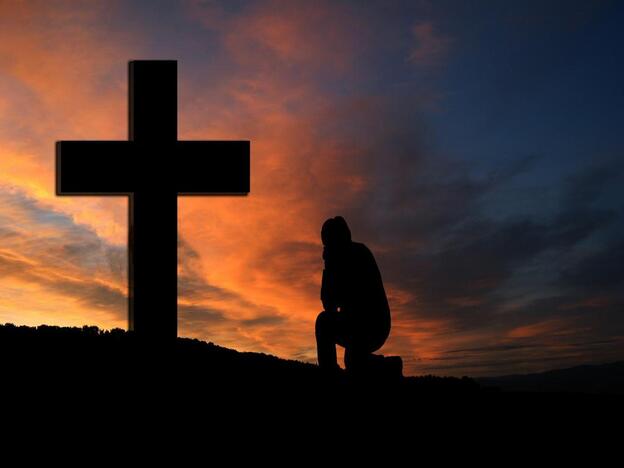
Understanding Sexual Abuse: An Interview with Cyndie Randall, MA, LLPC
by Kristy Burmeister
If we want to fight sex abuse in the church, the first step is educating ourselves. We have to understand what abuse is and how predators operate. I asked Cyndie Randall, MA, LLPC to answer some questions so we can be better equipped to fight this evil. As you read, look out for links to resources she’s provided for us so we can learn even more.
We hear a lot about sexual abuse, but sometimes people have different definitions of that. How would you define sexual abuse?“Sexual abuse is unwanted sexual activity, with perpetrators using force, making threats, or taking advantage of victims not able to give consent” (“Sexual Abuse,” 2018).
This is how the American Psychological Association defines sexual abuse. I think their definition encapsulates it well, and because I’ve seen how common it is for victims, perpetrators, and the broader culture to either minimize or normalize this type of harm, I’d like to unpack some of the concepts a bit.
Unwanted sexual activity: In his book, The Wounded Heart: Hope for Adult Victims of Childhood Sexual Abuse (2008), Dr. Dan B. Allender describes sexual abuse as any contact or interaction – visual, verbal, psychological, or physical – in which the victim is being used for the stimulation of the perpetrator or any other person. He also distinguishes between “contact” and “interaction” behaviors.
Contact behaviors include forcible or non-forcible rape or penetration, sexual kissing, or clothed or unclothed touching of any kind (ex: breasts, stomach, thighs, legs, buttocks, genitals).
Interaction behaviors are things like direct or subtle solicitation or innuendo, sexual language or descriptions, and exposure to pornography, sexual acts, sexual organs, or provocative attire. It can also include psychological components such as boundary violations involving menstruation, clothing, development, or the use of a child as an intimate or emotional confidant or spouse surrogate (Allender, 2008).
Perpetrators: Perpetrators of sexual abuse can be children or adolescents who are in positions of power or control over another child or adolescent, or adults who are acting out upon a child, adolescent, or another adult.
Force/Making of threats: This can range from overt threats of danger (including the use of actual weapons, physical force, or direct threats to personal or familial safety or life), to manipulated, coerced, or pressured unwanted sexual activity.
Taking advantage of victims not able to give consent: Perpetrators of abuse take advantage of power differentials and vulnerabilities that make consent to sexual activity diminished or impossible. The Rape, Abuse, and Incest National Network (RAINN) offers a clear picture of the legal role of consent and the factors that can affect this capacity.
The church is dealing with two types of sexual abuse: child sexual abuse and adult sexual abuse. I think most people understand child sexual abuse, but they can be confused about adult sexual abuse and how that differs from something like an affair. Can you explain what would make a situation between two adults abusive?
Read More
by Kristy Burmeister
If we want to fight sex abuse in the church, the first step is educating ourselves. We have to understand what abuse is and how predators operate. I asked Cyndie Randall, MA, LLPC to answer some questions so we can be better equipped to fight this evil. As you read, look out for links to resources she’s provided for us so we can learn even more.
We hear a lot about sexual abuse, but sometimes people have different definitions of that. How would you define sexual abuse?“Sexual abuse is unwanted sexual activity, with perpetrators using force, making threats, or taking advantage of victims not able to give consent” (“Sexual Abuse,” 2018).
This is how the American Psychological Association defines sexual abuse. I think their definition encapsulates it well, and because I’ve seen how common it is for victims, perpetrators, and the broader culture to either minimize or normalize this type of harm, I’d like to unpack some of the concepts a bit.
Unwanted sexual activity: In his book, The Wounded Heart: Hope for Adult Victims of Childhood Sexual Abuse (2008), Dr. Dan B. Allender describes sexual abuse as any contact or interaction – visual, verbal, psychological, or physical – in which the victim is being used for the stimulation of the perpetrator or any other person. He also distinguishes between “contact” and “interaction” behaviors.
Contact behaviors include forcible or non-forcible rape or penetration, sexual kissing, or clothed or unclothed touching of any kind (ex: breasts, stomach, thighs, legs, buttocks, genitals).
Interaction behaviors are things like direct or subtle solicitation or innuendo, sexual language or descriptions, and exposure to pornography, sexual acts, sexual organs, or provocative attire. It can also include psychological components such as boundary violations involving menstruation, clothing, development, or the use of a child as an intimate or emotional confidant or spouse surrogate (Allender, 2008).
Perpetrators: Perpetrators of sexual abuse can be children or adolescents who are in positions of power or control over another child or adolescent, or adults who are acting out upon a child, adolescent, or another adult.
Force/Making of threats: This can range from overt threats of danger (including the use of actual weapons, physical force, or direct threats to personal or familial safety or life), to manipulated, coerced, or pressured unwanted sexual activity.
Taking advantage of victims not able to give consent: Perpetrators of abuse take advantage of power differentials and vulnerabilities that make consent to sexual activity diminished or impossible. The Rape, Abuse, and Incest National Network (RAINN) offers a clear picture of the legal role of consent and the factors that can affect this capacity.
The church is dealing with two types of sexual abuse: child sexual abuse and adult sexual abuse. I think most people understand child sexual abuse, but they can be confused about adult sexual abuse and how that differs from something like an affair. Can you explain what would make a situation between two adults abusive?
Read More

1 in 10 Young Protestants Have Left a Church Over Abuse
by Kate Shellnutt
Surrounded by revelations of #MeToo and #ChurchToo, younger Christians are more keen to recognize sexual abuse—and less likely to put up with it.
According to a new study sponsored by LifeWay Christian Resources, 10 percent of Protestant churchgoers under 35 have previously left a church because they felt sexual misconduct was not taken seriously. That’s twice as many as the 5 percent of all churchgoers who have done the same.
Among the younger demographic, 9 percent said they have stopped attending a former congregation because they personally did not feel safe from misconduct. Churchgoers ages 18 to 34 are more likely than older generations to report experiencing sexual harassment—ranging from sexual comments and prolonged glances—at church and to know others at their church who are victims (23%).
“It is not surprising that young adults who have only known this frank ‘call it what it is’ sexual culture to be more likely to identify instances of misconduct than older adults,” Scott McConnell, executive director of LifeWay Research which conducted the survey, told CT.
Another factor: Younger churchgoers are also closest to the ages when most sexual assault takes place. The highest risk spans ages 12 to 34, peaking between 16 and 19, according to Justin Holcomb, an expert on sexual abuse in the church and a board member of GRACE (Godly Response to Abuse in the Christian Environment). Read More
by Kate Shellnutt
Surrounded by revelations of #MeToo and #ChurchToo, younger Christians are more keen to recognize sexual abuse—and less likely to put up with it.
According to a new study sponsored by LifeWay Christian Resources, 10 percent of Protestant churchgoers under 35 have previously left a church because they felt sexual misconduct was not taken seriously. That’s twice as many as the 5 percent of all churchgoers who have done the same.
Among the younger demographic, 9 percent said they have stopped attending a former congregation because they personally did not feel safe from misconduct. Churchgoers ages 18 to 34 are more likely than older generations to report experiencing sexual harassment—ranging from sexual comments and prolonged glances—at church and to know others at their church who are victims (23%).
“It is not surprising that young adults who have only known this frank ‘call it what it is’ sexual culture to be more likely to identify instances of misconduct than older adults,” Scott McConnell, executive director of LifeWay Research which conducted the survey, told CT.
Another factor: Younger churchgoers are also closest to the ages when most sexual assault takes place. The highest risk spans ages 12 to 34, peaking between 16 and 19, according to Justin Holcomb, an expert on sexual abuse in the church and a board member of GRACE (Godly Response to Abuse in the Christian Environment). Read More

The Abusers Web of Deception
by Wade Mullen @wad3mullen wademullen.
A primary goal of the exposed abuser is to capture the truth in a web of deception. It’s a highly deceptive process intended to control your perceptions so you see only what the deceiver wants you to see.
The ability to weave a web of deception is never put on display as much as it is when the deceiver is confronted or exposed. I’ve seen abusive individuals deftly spin a web of deception around the truth in a matter of minutes. They do this by weaving threads between themselves and issues or people indirectly related to the central truths. These tactics of deception are similar to what is described in the field of sociology as “impression management by association.” I see these associations made all the time by abusers in my advocacy and research.
Using the metaphor of a spider web, here are 8 hard to recognize threads:
Those who do escape the web walk away bewildered, unsure of how to address an issue that once was as clear as day. To the abuser’s satisfaction, they soon forget that behind all those threads is an entrapped truth, a truth that could have freed others had it remained free itself.
The truth-seeker must have the patience and wisdom to see each thread, understand its purpose, and then detach it from the truth it is seeking to capture. For example, when asking a specific question about a specific behavior, the abuser might respond by saying, “Listen, I’ve always treated people with respect.” That thread needs to be removed by drawing attention back to the specifics. And nothing frustrates the deceiver’s attempt to spin a web more than the person who keeps removing each thread.
by Wade Mullen @wad3mullen wademullen.
A primary goal of the exposed abuser is to capture the truth in a web of deception. It’s a highly deceptive process intended to control your perceptions so you see only what the deceiver wants you to see.
The ability to weave a web of deception is never put on display as much as it is when the deceiver is confronted or exposed. I’ve seen abusive individuals deftly spin a web of deception around the truth in a matter of minutes. They do this by weaving threads between themselves and issues or people indirectly related to the central truths. These tactics of deception are similar to what is described in the field of sociology as “impression management by association.” I see these associations made all the time by abusers in my advocacy and research.
Using the metaphor of a spider web, here are 8 hard to recognize threads:
- The exposed abuser might create a thread between themselves and others people view favorably. They draw attention to another person or group and then boast in their positive connection to them. They will bask in the reflected glory of someone else’s values when their’s are questioned. One of the most common examples of this is seen in the abuser who seeks to highlight a positive connection with God or a spiritual leader.
- They will then spin a thread around more serious examples of wrongs and boast in how they are not like such people and have never engaged in such horrible behavior, and that they would even go out of their way to oppose such behavior. You are then led to believe they should not be connected to the less serious actions they are accused of. The individual who abuses verbally and psychologically might draw comparisons to other types of abuse they deem more serious and promote how they are not like such people.
- They might thread together their life’s work and their contribution to that work. This is often seen in response to a specific question about a specific behavior. Rather than address the details of their behavior, they spotlight their life in general because it is easier to defend. This tactic subtly diverts attention away from any specific words or actions they know are more difficult to explain.
- If they can’t escape addressing the story, they will weave together an effective fiction. This new version is said to provide clarity when in fact it produces confusion. Nobody, even the abuser, seems to possess an accurate recollection of events, so everyone moves on because they grow tired of trying to see through the fog.
- Abusers quickly identify who their supporters are and then use flattery, compliments, and expressions of appreciation to thread themselves to their supporters. They will publicly enhance their positive attributes in order to bolster the credibility of their judgement. The more people view with favor the people the abuser is positively connected to, the more likely they are to believe the abuser.
- They will quickly identify who their critics are and then thread their criticism to fabricated or exaggerated negative attributes like hatred, bitterness, and revenge. Criticism is then viewed by others as malicious and misguided, and perhaps even evil. The more people view with disfavor the people the abuser is negatively associated with (critics), the more likely they are to believe the abuser.
- Abusers may go so far as to add their family members to this portion of the web. By connecting the accusers to the perceived negative effects the allegations are having on their family, the abuser pours more condemnation on their critics & requests more help from supporters. This is a common tactic in which the innocent are used as a shield to protect the abuser.
- If necessary (and only if necessary) an abuser will spin an apology. This apology will not be threaded to the truth of their actions, but to unintended mistakes that resulted in unintended harm. The apology is a deception that seeks to retain legitimacy and avoid shame. The words “I’m sorry” can be used to disarm those who are seeking to free the truth from the web.
Those who do escape the web walk away bewildered, unsure of how to address an issue that once was as clear as day. To the abuser’s satisfaction, they soon forget that behind all those threads is an entrapped truth, a truth that could have freed others had it remained free itself.
The truth-seeker must have the patience and wisdom to see each thread, understand its purpose, and then detach it from the truth it is seeking to capture. For example, when asking a specific question about a specific behavior, the abuser might respond by saying, “Listen, I’ve always treated people with respect.” That thread needs to be removed by drawing attention back to the specifics. And nothing frustrates the deceiver’s attempt to spin a web more than the person who keeps removing each thread.

Submitting to Church Leaders Isn't as Biblical as You Think
by Jimmy Hinton
“Be persuaded by those who go before you, and yield, for they watch over your souls, as ones about to give an account; that they may do it with joy, and not groaning, for this is not beneficial for you” (Hebrews 13:17, my translation).
“. . . not leaving helpless those of us assembling together, as is the custom with some, but consoling one another, and so much more as you see the day drawing near” (Hebrews 10:25, my translation).
I remember sitting in disbelief as the elders stood up front to address the church I was attending with a “serious matter.” I was in seminary and had been at this rural Arkansas church for at least a year. They were my family. As the elders stood up, they were stoic and firm. “A few days ago, brother Mark (not his real name), as he was leading worship, decided to change the words to Jesus Loves ‘Us’ instead of Jesus Loves ‘Me.’ He did so without permission from us elders and a sister in Christ was offended. We’ve asked Mark to repent and he is going to share his public confession now.”
I watched in horror as one of the kindest people I’d ever met stood humiliated and weeping before 200 some people and a group of arrogant elders asking for forgiveness for not submitting to the eldership. In my mind I wanted to stand up and shout out, “Who do you fake elders think you are?” Someone needed permission by the elders to change one word in a song? Is this really the kind of shepherd Jesus said he was in John 10 when he said, “the Good Shepherd lays his life down for his sheep”? Were these fools standing before us the kind of shepherds Jesus called to keep watch over his flock? Something didn’t sit right with me and a few months later, when these same elders rejected my request to teach a class there as a required practicum to complete my Master’s degree, I parted ways forever. They told me that they didn’t have time to proof read and approve all of my lessons. This congregation had all the indicators of a cult, not a church. So I left. More power to them (pun intended). Read More
by Jimmy Hinton
“Be persuaded by those who go before you, and yield, for they watch over your souls, as ones about to give an account; that they may do it with joy, and not groaning, for this is not beneficial for you” (Hebrews 13:17, my translation).
“. . . not leaving helpless those of us assembling together, as is the custom with some, but consoling one another, and so much more as you see the day drawing near” (Hebrews 10:25, my translation).
I remember sitting in disbelief as the elders stood up front to address the church I was attending with a “serious matter.” I was in seminary and had been at this rural Arkansas church for at least a year. They were my family. As the elders stood up, they were stoic and firm. “A few days ago, brother Mark (not his real name), as he was leading worship, decided to change the words to Jesus Loves ‘Us’ instead of Jesus Loves ‘Me.’ He did so without permission from us elders and a sister in Christ was offended. We’ve asked Mark to repent and he is going to share his public confession now.”
I watched in horror as one of the kindest people I’d ever met stood humiliated and weeping before 200 some people and a group of arrogant elders asking for forgiveness for not submitting to the eldership. In my mind I wanted to stand up and shout out, “Who do you fake elders think you are?” Someone needed permission by the elders to change one word in a song? Is this really the kind of shepherd Jesus said he was in John 10 when he said, “the Good Shepherd lays his life down for his sheep”? Were these fools standing before us the kind of shepherds Jesus called to keep watch over his flock? Something didn’t sit right with me and a few months later, when these same elders rejected my request to teach a class there as a required practicum to complete my Master’s degree, I parted ways forever. They told me that they didn’t have time to proof read and approve all of my lessons. This congregation had all the indicators of a cult, not a church. So I left. More power to them (pun intended). Read More

Transitioning From Bad Leadership to Good -
Lessons from Hezekiah
One of the most disheartening developments in the Church recently, particularly in America and under the umbrella term “evangelicalism”, has been the exposure of corrupt or simply incompetent leadership in local churches. The biggest controversies have involved famous pastors with influential megachurches. The pastors’ teachings and books are everywhere; they were in-demand speakers at conferences; they were adored by their congregations. But then we have discovered that there was corruption all along. How do their congregations recover and distance themselves from their sinful leadership of the past?
There are several places in scripture we can seek for guidance, but today I want to look at King Hezekiah’s first acts as king. Let’s focus solely on how he governed the transition from a terrible king (his father, Ahaz) to his reign, which is given great praise in the Old Testament. “Hezekiah trusted in the Lord, the God of Israel. There was no one like him among all the kings of Judah, either before him or after him.” (2 Kings 18:5). For this transition and a few lessons for us, we will focus on 2 Chronicles 29-31. Read More
Lessons from Hezekiah
One of the most disheartening developments in the Church recently, particularly in America and under the umbrella term “evangelicalism”, has been the exposure of corrupt or simply incompetent leadership in local churches. The biggest controversies have involved famous pastors with influential megachurches. The pastors’ teachings and books are everywhere; they were in-demand speakers at conferences; they were adored by their congregations. But then we have discovered that there was corruption all along. How do their congregations recover and distance themselves from their sinful leadership of the past?
There are several places in scripture we can seek for guidance, but today I want to look at King Hezekiah’s first acts as king. Let’s focus solely on how he governed the transition from a terrible king (his father, Ahaz) to his reign, which is given great praise in the Old Testament. “Hezekiah trusted in the Lord, the God of Israel. There was no one like him among all the kings of Judah, either before him or after him.” (2 Kings 18:5). For this transition and a few lessons for us, we will focus on 2 Chronicles 29-31. Read More

Willow's Groundswell for Apology
by Scot McKnight
This apology began with Kyle Henderson’s disquiet over how Willow and the WCA/GLS had responded to the women. It grew in conversation, especially with the women who had been sexually abused and harassed at Willow, and now has become a public — sign it — apology. It is the right thing to do.
Sign the Apology here
The Apology
We recognize that the conversations we had and the information we shared perpetuated a false narrative about the women who bravely told us the truth. Therefore our conscience demands that we apologize specifically for what we have done.
To the brave individuals who confronted the Willow Creek System,
When we first heard your claims, we did not believe you. We chose our love for Bill over our love for you. We discounted you. We decided that your words were not of value to us. We chose power and loyalty over truth and love. We were wrong.
We talked about you in ways that disparaged your character, accused you of collusion and assumed we understood your motives to be anything, but the revelation of truth. We were wrong.
We sat by silently while you tried to tell us the truth. We did not listen.
We continued to perpetuate the systematic silencing and questioning of women who were making allegations against those in power over them. We ignored the truth.
We failed to hold those who represented us to account for the way you were treated. We deflected our responsibility.
Read More
by Scot McKnight
This apology began with Kyle Henderson’s disquiet over how Willow and the WCA/GLS had responded to the women. It grew in conversation, especially with the women who had been sexually abused and harassed at Willow, and now has become a public — sign it — apology. It is the right thing to do.
Sign the Apology here
The Apology
We recognize that the conversations we had and the information we shared perpetuated a false narrative about the women who bravely told us the truth. Therefore our conscience demands that we apologize specifically for what we have done.
To the brave individuals who confronted the Willow Creek System,
When we first heard your claims, we did not believe you. We chose our love for Bill over our love for you. We discounted you. We decided that your words were not of value to us. We chose power and loyalty over truth and love. We were wrong.
We talked about you in ways that disparaged your character, accused you of collusion and assumed we understood your motives to be anything, but the revelation of truth. We were wrong.
We sat by silently while you tried to tell us the truth. We did not listen.
We continued to perpetuate the systematic silencing and questioning of women who were making allegations against those in power over them. We ignored the truth.
We failed to hold those who represented us to account for the way you were treated. We deflected our responsibility.
Read More

Why Do Churches Put Up with Narcissist Leaders?
by John Koessler
Another high profile pastor has been accused of abusive leadership. The story is so familiar to us by now that it has become monotonous. We are sorry, but we are not surprised. Or maybe we are not sorry. The debacle holds a macabre fascination for us. Like watching a horrific accident while it is in progress, we can’t look away. The fall of a great leader appeals to our egalitarian sensibilities. We like to see the mighty cut down. Americans love to hate their leaders. The story of abusive leaders has become so familiar by now that we ought to ask a question. Why do churches tolerate such pastors? Churches stick with abusive leaders for the same reasons people remain in other abusive relationships.
We are Attracted to Them
No church that is looking for a pastor says to itself, “Hey, I know! Let’s hire a conceited jerk!” Churches give a lot of thought to the characteristics they want to see in their pastor, and most of them are good. Nobody who decides to attend a church is thinking, “Where can I find an abusive pastor today?” The church is drawn to narcissistic leaders because they are attractive to us. Narcissistic leaders have a presence. They are exciting. They hold out the promise of great things for the church. Many produce impressive results, at least for a while. Those who see through the hype recognize it as pretentiousness. But for churches who are hoping for a messianic leader, narcissistic style can be very appealing. These churches are willing to tolerate the abuse in the hope that the pastor will lead them into the Promised Land of ministry success.
Read More
by John Koessler
Another high profile pastor has been accused of abusive leadership. The story is so familiar to us by now that it has become monotonous. We are sorry, but we are not surprised. Or maybe we are not sorry. The debacle holds a macabre fascination for us. Like watching a horrific accident while it is in progress, we can’t look away. The fall of a great leader appeals to our egalitarian sensibilities. We like to see the mighty cut down. Americans love to hate their leaders. The story of abusive leaders has become so familiar by now that we ought to ask a question. Why do churches tolerate such pastors? Churches stick with abusive leaders for the same reasons people remain in other abusive relationships.
We are Attracted to Them
No church that is looking for a pastor says to itself, “Hey, I know! Let’s hire a conceited jerk!” Churches give a lot of thought to the characteristics they want to see in their pastor, and most of them are good. Nobody who decides to attend a church is thinking, “Where can I find an abusive pastor today?” The church is drawn to narcissistic leaders because they are attractive to us. Narcissistic leaders have a presence. They are exciting. They hold out the promise of great things for the church. Many produce impressive results, at least for a while. Those who see through the hype recognize it as pretentiousness. But for churches who are hoping for a messianic leader, narcissistic style can be very appealing. These churches are willing to tolerate the abuse in the hope that the pastor will lead them into the Promised Land of ministry success.
Read More

Dual Relationships When Clergy Counsel Congregants
by Jessica A. Justice, MSW, and Diana Garland, LCSW, PhD
Every human interaction involves interpretations of roles and interpersonal boundaries. These roles and boundaries dictate appropriate versus inappropriate behavior between a person and family, friends, co-workers, and professionals, ultimately helping society to create a sense of structure and expectations for social interactions. However, when an individual functions in multiple roles with another person, the interpersonal boundaries can become ambiguous. When a professional has more than one role with another person for example, "as both a friend and teacher, or as a doctor and next-door neighbor" the professional is in a "dual relationship." Gabriel (2005) suggests that a dual relationship exists when "a one-to-one contracted therapy relationship occurs between an individual in a therapeutic role of 'client' and another individual in the role of 'therapist' overlaps into a non-therapy context or role" (p 128). Another definition of a dual relationship is that it consists of "two or more distinct kinds of relationships with the same person" (Endacott et al, 2006, p 988; Judd et al, 2002). Even though some professions permit and even encourage professionals to interact with their clients in various kinds of relationships (Bleiberg & Skufka, 2005), dual relationships can become especially problematic when the professional role is that of a therapist. The therapeutic environment requires a high level of trust, vulnerability, and confidentiality. It is essential to the client-counselor relationship for the counselor to avoid interacting with the client in other roles where that vulnerability and confidentiality may be breached. For example, if a counselor is also married to a client's best friend, the counselor must remember what she knows about the client from the informal friendship, and what she knows from the counseling relationship, and not get the two confused. Also, the client is left wondering what the counselor may tell his best friend that she learned in the counseling sessions. Such a dual relationship makes it difficult for the client to feel safe in either relationship. Read More
by Jessica A. Justice, MSW, and Diana Garland, LCSW, PhD
Every human interaction involves interpretations of roles and interpersonal boundaries. These roles and boundaries dictate appropriate versus inappropriate behavior between a person and family, friends, co-workers, and professionals, ultimately helping society to create a sense of structure and expectations for social interactions. However, when an individual functions in multiple roles with another person, the interpersonal boundaries can become ambiguous. When a professional has more than one role with another person for example, "as both a friend and teacher, or as a doctor and next-door neighbor" the professional is in a "dual relationship." Gabriel (2005) suggests that a dual relationship exists when "a one-to-one contracted therapy relationship occurs between an individual in a therapeutic role of 'client' and another individual in the role of 'therapist' overlaps into a non-therapy context or role" (p 128). Another definition of a dual relationship is that it consists of "two or more distinct kinds of relationships with the same person" (Endacott et al, 2006, p 988; Judd et al, 2002). Even though some professions permit and even encourage professionals to interact with their clients in various kinds of relationships (Bleiberg & Skufka, 2005), dual relationships can become especially problematic when the professional role is that of a therapist. The therapeutic environment requires a high level of trust, vulnerability, and confidentiality. It is essential to the client-counselor relationship for the counselor to avoid interacting with the client in other roles where that vulnerability and confidentiality may be breached. For example, if a counselor is also married to a client's best friend, the counselor must remember what she knows about the client from the informal friendship, and what she knows from the counseling relationship, and not get the two confused. Also, the client is left wondering what the counselor may tell his best friend that she learned in the counseling sessions. Such a dual relationship makes it difficult for the client to feel safe in either relationship. Read More

Survivors Support Bill to Criminalize Adult Sexual Abuse by Clergy
by Bob Allen
Survivors of clergy sexual abuse and experts from across the country traveled to Maine March 29 to support legislation making it a crime for clergy members to abuse their positions of trust to have sexual relations with adults.
An Act To Protect the Public from Clergy Sexual Abuse, LD 913, would make it a crime punishable by five years’ imprisonment and up to a $5,000 fine for a member of clergy in any religious denomination “in a position of trust or authority” over another person to cause that individual “to submit to or participate in [a] sexual act by exploiting the person’s emotional dependency.” Thirteen states and the District of Columbia have similar laws already on the books.
“Every state needs to criminalize clergy-perpetrated sexual abuse,” David Pooler, a professor of social work at Baylor University in Waco, Texas, testified before the Criminal Justice and Public Safety Committee in the Maine Legislature.
Four years ago Pooler surveyed 280 survivors of sexual abuse perpetrated by clergy. Just 4 percent of women say their abuser was prosecuted, he said, and most knew they were not the only victim. Too often, he said, abusive clergy are moved to another church only to harm again. Read More
by Bob Allen
Survivors of clergy sexual abuse and experts from across the country traveled to Maine March 29 to support legislation making it a crime for clergy members to abuse their positions of trust to have sexual relations with adults.
An Act To Protect the Public from Clergy Sexual Abuse, LD 913, would make it a crime punishable by five years’ imprisonment and up to a $5,000 fine for a member of clergy in any religious denomination “in a position of trust or authority” over another person to cause that individual “to submit to or participate in [a] sexual act by exploiting the person’s emotional dependency.” Thirteen states and the District of Columbia have similar laws already on the books.
“Every state needs to criminalize clergy-perpetrated sexual abuse,” David Pooler, a professor of social work at Baylor University in Waco, Texas, testified before the Criminal Justice and Public Safety Committee in the Maine Legislature.
Four years ago Pooler surveyed 280 survivors of sexual abuse perpetrated by clergy. Just 4 percent of women say their abuser was prosecuted, he said, and most knew they were not the only victim. Too often, he said, abusive clergy are moved to another church only to harm again. Read More

3 Ways We Must Reimagine Our Ecclesiology in a Post-Willow Creek World by David Fitch
These are sad days for Christians in America. In Chicagoland especially, we find ourselves mourning over two of the most revered leaders of the largest mega churches in the suburbs, both of whom stepped down revealing a legacy of immoral leadership in their wake. The headlines are everywhere in the media. And now, added on to this, the Southern Baptist denomination and the Vatican Summit on Child Protection both report endemic sexual abuse among its pastors and priests (and this points squarely at American Catholic priests).
Many Christians are left aghast. The foundations of American Christianity, especially evangelicalism, have been shaken to the core. There simply is no place for us to hide.
Being an evangelical Christian in Chicagoland has, in particular, changed. Among non-Christian friends, coworkers, strangers, and neighbors, the moral failures of the leaders of our landmark churches has amped up the redefining of what it means to be an evangelical in our context. Whereas I used to have to fend off questions of: did you vote for Donald Trump?, do you hate gay/lesbian people? Now I must also withstand looks of pity, incredulity, or even disgust at the hypocrisy and fakery now associated with going to one of these evangelical churches.
And so, it is apparent that being a witness for the gospel as an evangelical in Chicagoland has never been more challenging. We’ve arrived at what I could be a cultural moment for evangelicalism in America. Read Article
These are sad days for Christians in America. In Chicagoland especially, we find ourselves mourning over two of the most revered leaders of the largest mega churches in the suburbs, both of whom stepped down revealing a legacy of immoral leadership in their wake. The headlines are everywhere in the media. And now, added on to this, the Southern Baptist denomination and the Vatican Summit on Child Protection both report endemic sexual abuse among its pastors and priests (and this points squarely at American Catholic priests).
Many Christians are left aghast. The foundations of American Christianity, especially evangelicalism, have been shaken to the core. There simply is no place for us to hide.
Being an evangelical Christian in Chicagoland has, in particular, changed. Among non-Christian friends, coworkers, strangers, and neighbors, the moral failures of the leaders of our landmark churches has amped up the redefining of what it means to be an evangelical in our context. Whereas I used to have to fend off questions of: did you vote for Donald Trump?, do you hate gay/lesbian people? Now I must also withstand looks of pity, incredulity, or even disgust at the hypocrisy and fakery now associated with going to one of these evangelical churches.
And so, it is apparent that being a witness for the gospel as an evangelical in Chicagoland has never been more challenging. We’ve arrived at what I could be a cultural moment for evangelicalism in America. Read Article

55 Common Abusive Remarks
by Christine Hammond, MS, LMHC
Ever wondered what abuse sounds like? What do abusers say to their victims to get them to acquiesce? Some of the statements listed below might even sound acceptable in certain environments, but they are not. Abusive behavior is pervasive and without awareness, it will continue.
There are seven major types of abuse.
by Christine Hammond, MS, LMHC
Ever wondered what abuse sounds like? What do abusers say to their victims to get them to acquiesce? Some of the statements listed below might even sound acceptable in certain environments, but they are not. Abusive behavior is pervasive and without awareness, it will continue.
There are seven major types of abuse.
- Mental abuse is gaslighting, silence, manipulation, and victimization.
- Verbal abuse is screaming, bullying, name calling, berating, and blaming.
- Sexual abuse is jealous rages, coercion, sexual withdraw, rape, and degrading acts.
- Emotional abuse is intense anxiety, guilt, confusion, shame, anger, hostility, rejection, and fear.
- Financial abuse is stealing, destroying assets, hiding resources, refusing access, falsifying records, and interfering with work environments.
- Spiritual abuse is dichotomous thinking, prejudice, elitist beliefs, demanding submission, excommunication, and estrangement.
- Physical abuse is intimidation, isolation, restraint, aggression, and endangerment. Read Article

Prophetic Survivors: Ruthy Nordgren
by Abby Perry
Ruthy Nordgren grew up without a television. She dressed in long denim skirts and t-shirts that never showed more than two inches between her collarbone and neckline. Her Independent Fundamental Baptist (IFB) culture refused to teach children about anatomy or sex. So when Aaron Willand, a teacher at Grace Baptist Christian School in Gaylord, Michigan, molested Ruthy at age twelve and repeatedly raped her at age fourteen, she didn’t have any idea what was happening.
Ruthy's sister, Naomi, knew something was amiss with Willand years before she ever learned of his abusing Ruthy. One day in the early 2000s, Naomi spotted Willand kissing another one of her sisters, whom we'll call Anna, on school property. The Grace Baptist Christian School and Grace Baptist Church shared leadership, so Naomi went to her youth pastor, Derek Hagland to tell him what she saw. He dismissed her claim. Pastors told Naomi’s mother that Naomi was a liar.
Had the pastors believed Naomi, Ruthy could have been spared most, if not all, of the abuse she suffered.
Read More
by Abby Perry
Ruthy Nordgren grew up without a television. She dressed in long denim skirts and t-shirts that never showed more than two inches between her collarbone and neckline. Her Independent Fundamental Baptist (IFB) culture refused to teach children about anatomy or sex. So when Aaron Willand, a teacher at Grace Baptist Christian School in Gaylord, Michigan, molested Ruthy at age twelve and repeatedly raped her at age fourteen, she didn’t have any idea what was happening.
Ruthy's sister, Naomi, knew something was amiss with Willand years before she ever learned of his abusing Ruthy. One day in the early 2000s, Naomi spotted Willand kissing another one of her sisters, whom we'll call Anna, on school property. The Grace Baptist Christian School and Grace Baptist Church shared leadership, so Naomi went to her youth pastor, Derek Hagland to tell him what she saw. He dismissed her claim. Pastors told Naomi’s mother that Naomi was a liar.
Had the pastors believed Naomi, Ruthy could have been spared most, if not all, of the abuse she suffered.
Read More

Abusers look for opportunities more than vulnerabilities
by Jimmy Hinton
We often hear that abusers find vulnerabilities and exploit them–that they search for the vulnerable single parent to target them or their kids, or they find vulnerable institutions with weak policies, or they find vulnerable kids who have an unstable home life or low self-esteem. With this premise, training tends to focus on reducing vulnerabilities and increasing awareness. Educate people more, create more programs to help at-risk children, have seminars on better parenting, put two adults in every classroom, put windows in doors, talk to teens about self-esteem, and on the list goes. While I’m in favor for doing all of the above, I also know enough now to know that this will do very little to deter abusers. This is a defensive stance, and abusers are always on the offensive. When they see someone playing defense, they will forge a way to covertly go around that line and accomplish the goal they set out to do anyway. Like the child who saw an opportunity when my wife turned her back, abusers know how to see opportunities the second they arise. And if opportunities don’t present themselves, abusers will create opportunities. Read More
by Jimmy Hinton
We often hear that abusers find vulnerabilities and exploit them–that they search for the vulnerable single parent to target them or their kids, or they find vulnerable institutions with weak policies, or they find vulnerable kids who have an unstable home life or low self-esteem. With this premise, training tends to focus on reducing vulnerabilities and increasing awareness. Educate people more, create more programs to help at-risk children, have seminars on better parenting, put two adults in every classroom, put windows in doors, talk to teens about self-esteem, and on the list goes. While I’m in favor for doing all of the above, I also know enough now to know that this will do very little to deter abusers. This is a defensive stance, and abusers are always on the offensive. When they see someone playing defense, they will forge a way to covertly go around that line and accomplish the goal they set out to do anyway. Like the child who saw an opportunity when my wife turned her back, abusers know how to see opportunities the second they arise. And if opportunities don’t present themselves, abusers will create opportunities. Read More

Why Adult Victims of Childhood Sexual Abuse Don't Disclose
by Beverly Engel, L.M.F.T
As the recent HBO documentary entitled Leaving Neverland so powerfully demonstrated, there are many adults who have yet to tell anyone that they were sexually abused as a child—not their partners, not their friends, not their family members, often not even their therapist. Many of us are familiar with the reasons why children do not come forward to report child sexual abuse, but many don’t understand why adults continue to carry this secret, sometimes to their graves. I have been counseling adult victims of child sexual abuse for the past 35 years. In this article I will discuss many of the reasons why some adults continue to keep silent when it comes to being a victim of child sexual abuse. (Read More)
by Beverly Engel, L.M.F.T
As the recent HBO documentary entitled Leaving Neverland so powerfully demonstrated, there are many adults who have yet to tell anyone that they were sexually abused as a child—not their partners, not their friends, not their family members, often not even their therapist. Many of us are familiar with the reasons why children do not come forward to report child sexual abuse, but many don’t understand why adults continue to carry this secret, sometimes to their graves. I have been counseling adult victims of child sexual abuse for the past 35 years. In this article I will discuss many of the reasons why some adults continue to keep silent when it comes to being a victim of child sexual abuse. (Read More)

How to Support a Friend or Loved One Who Has Been Sexually Abused
by Vanessa Marin
It’s an especially difficult time to be a survivor of sexual abuse or assault. On top of the daily struggle to stay safe and healthy, sexual abuse survivors also have to contend with an endlessly triggering news cycle.
If you’re not a survivor yourself but you’re close to one — maybe a partner, friend or family member — you may not be able to fully understand what they’re going through, and you may feel confused or lost about how to best support them. Here’s what you need to know, and how you can be supportive.
Listen to their story (if they want to talk)If your partner or friend seems to be struggling, let them know you’re available if they need to talk. If you haven’t already, listen to their story, if they’re ready to tell you. They may also want to express their anger, frustration, fear or sadness about recent news events. Don’t pressure your friend into talking or telling you their story, but let them know you’re open to listening to whatever they want to share. (Read More)
by Vanessa Marin
It’s an especially difficult time to be a survivor of sexual abuse or assault. On top of the daily struggle to stay safe and healthy, sexual abuse survivors also have to contend with an endlessly triggering news cycle.
If you’re not a survivor yourself but you’re close to one — maybe a partner, friend or family member — you may not be able to fully understand what they’re going through, and you may feel confused or lost about how to best support them. Here’s what you need to know, and how you can be supportive.
Listen to their story (if they want to talk)If your partner or friend seems to be struggling, let them know you’re available if they need to talk. If you haven’t already, listen to their story, if they’re ready to tell you. They may also want to express their anger, frustration, fear or sadness about recent news events. Don’t pressure your friend into talking or telling you their story, but let them know you’re open to listening to whatever they want to share. (Read More)

A Question Of Character: Getting Unstuck Is Not the Church's Biggest Problem
by Karl Vaters
There is a crisis in the church. People are leaving. And we want them to come back.
But before we ask how to get them back, we need to ask why they’re leaving in the first place.
It’s not because our churches aren’t big enough, cool enough, relevant enough, or convenient enough. Increasingly, it’s a question of character.
The church’s character issues need to be addressed first. Not as a means to reverse our loss of numbers. But because it’s the right thing to do, no matter what our numbers are. Read More
by Karl Vaters
There is a crisis in the church. People are leaving. And we want them to come back.
But before we ask how to get them back, we need to ask why they’re leaving in the first place.
It’s not because our churches aren’t big enough, cool enough, relevant enough, or convenient enough. Increasingly, it’s a question of character.
The church’s character issues need to be addressed first. Not as a means to reverse our loss of numbers. But because it’s the right thing to do, no matter what our numbers are. Read More

The Problem with "Evil"
in Describing Southern Baptist Abuse Crises
by Carol Howard Merritt
Now that I’m a pastor, I hold this truth within me: Every person has the capacity to do horrible things and so our congregations need to be set up with ways to report that go beyond a distraught housewife armed with a telephone.
I was ten years old when my mother began her flurried calls. Cradling the receiver in her hands, she spoke in hushed and urgent tones to anyone who would listen, letting them know that our former pastor was a pedophile. He had violated my sister and she warned them that they should keep their children far away from him. Our Southern Baptist Church didn’t allow women to have a voice in the governance of the church, and they lacked any system to report pastors who had abused children, so mom used the only power available to her. She employed that backchannel that pastors preach against—she used gossip.
With each conversation, she worried that she had called too late. Other stories bubbled up—something about the pastor’s odd behavior in a pool when he was with another child, and even the possibility of violence. Read More
in Describing Southern Baptist Abuse Crises
by Carol Howard Merritt
Now that I’m a pastor, I hold this truth within me: Every person has the capacity to do horrible things and so our congregations need to be set up with ways to report that go beyond a distraught housewife armed with a telephone.
I was ten years old when my mother began her flurried calls. Cradling the receiver in her hands, she spoke in hushed and urgent tones to anyone who would listen, letting them know that our former pastor was a pedophile. He had violated my sister and she warned them that they should keep their children far away from him. Our Southern Baptist Church didn’t allow women to have a voice in the governance of the church, and they lacked any system to report pastors who had abused children, so mom used the only power available to her. She employed that backchannel that pastors preach against—she used gossip.
With each conversation, she worried that she had called too late. Other stories bubbled up—something about the pastor’s odd behavior in a pool when he was with another child, and even the possibility of violence. Read More
The spiritually abusive organization becomes like a machine that views their people as objects to be separated into cubicles of charm or crucibles of condemnation based upon their willingness to unconditionally comply with the demands of the organization.
Filling the cubicles of charm are flattering messages, favors, and grandiose statements that tell supporters they are models for others, special, the greatest group to lead, and the reason for the organization’s success. Such messages are accepted, enjoyed, and returned without much regard for truth.
In the spiritually abusive organization, excessive charm quickly becomes excessive condemnation the moment loyalty is betrayed. Any non-supporters are quickly moved to crucibles of condemnation where the heat is turned up until the opposition is melted down. Read More
Filling the cubicles of charm are flattering messages, favors, and grandiose statements that tell supporters they are models for others, special, the greatest group to lead, and the reason for the organization’s success. Such messages are accepted, enjoyed, and returned without much regard for truth.
In the spiritually abusive organization, excessive charm quickly becomes excessive condemnation the moment loyalty is betrayed. Any non-supporters are quickly moved to crucibles of condemnation where the heat is turned up until the opposition is melted down. Read More

An Untried Path to Interrupt Clergy Sexual Abuse
by Michael Hanegan
Every week there appears to be another clergy sexual abuse scandal, or the blowback as evidence of a congregation, Christian organization, a group of churches or church leaders, and entire Christian traditions either burying, minimizing, or mishandling these devastating betrayals.
This is not just a Catholic problem either. In recent months there have been incredibly painful but important stories coming out about the Independent Fundamental Baptists, Southern Baptists, and missionary organizations.
It seems to me that there are three things that we have learned as we have watched this unfold over the course of the last decade. Institutions and individuals who have not in the past demonstrated a capacity or willingness to deal aggressively, transparently, and swiftly with this issue will not do so going forward.
If someone has come to “see the light” and to understand the ways that their complicity, or even worse, their coverup of such trauma and crime then the thing that needs to happen is that they step aside and hand the authority and leadership to people who are already doing this kind of justice-seeking, honest, and true work. Yes, people can change. Yes, people can repent and become advocates even. But they cannot continue to lead. There are too many bodies that have been violated, too many lives obliterated, and too many predators protected for them to remain in their place. Read More
by Michael Hanegan
Every week there appears to be another clergy sexual abuse scandal, or the blowback as evidence of a congregation, Christian organization, a group of churches or church leaders, and entire Christian traditions either burying, minimizing, or mishandling these devastating betrayals.
This is not just a Catholic problem either. In recent months there have been incredibly painful but important stories coming out about the Independent Fundamental Baptists, Southern Baptists, and missionary organizations.
It seems to me that there are three things that we have learned as we have watched this unfold over the course of the last decade. Institutions and individuals who have not in the past demonstrated a capacity or willingness to deal aggressively, transparently, and swiftly with this issue will not do so going forward.
If someone has come to “see the light” and to understand the ways that their complicity, or even worse, their coverup of such trauma and crime then the thing that needs to happen is that they step aside and hand the authority and leadership to people who are already doing this kind of justice-seeking, honest, and true work. Yes, people can change. Yes, people can repent and become advocates even. But they cannot continue to lead. There are too many bodies that have been violated, too many lives obliterated, and too many predators protected for them to remain in their place. Read More
We at Notinourchurch.com don't usually post articles written about specific churches or pastors. We typically post articles that speak of abuses in the church in general terms. But we're choosing to post the article below because it is an example of what we believe it's going to take to truly address abuse of power in churches. We believe there are many church pastors & leaders who aren't going to deal with abuses in their own church. If the abusive leadership has all of the power and is abusing it, they certainly aren't going to talk about it or put policies and procedures in place to stop the abuses. So, what are we to do to make that church safe?
We believe that too often we, as a congregation, as the people in the pews, give too much power to the pastors and leaders. They guide, lead, and even spoon-feed us on Sunday mornings. We do whatever they say without question. If we stand up to them, we're gone, usually in an ugly, humiliating exit. So, we, the congregation, have to "get our head out of the sand" and pay attention. If we see abuse of any king (spiritual, financial, sexual, bullying), we must address it. But how do we do that if we will be humiliated and thrown out? We do it in numbers. We, as a group of congregants, get the leadership's attention by walking out and by not tithing. Why would you stay in and give your money to an unhealthy, abusive organization? That is not even Biblical.
We love God's Church. And we love those God has called as shepherds. But we MUST understand that not every pastor has truly been called. There are, as the Bible warned, many wolves in our churches and in our pulpits. It is our responsibility as the saints to pay attention and be sure our church is safe. Matthew 7:15; Matthew 10:16; Acts 20:29.
Here's the link to Mancow Muller's letter:
We believe that too often we, as a congregation, as the people in the pews, give too much power to the pastors and leaders. They guide, lead, and even spoon-feed us on Sunday mornings. We do whatever they say without question. If we stand up to them, we're gone, usually in an ugly, humiliating exit. So, we, the congregation, have to "get our head out of the sand" and pay attention. If we see abuse of any king (spiritual, financial, sexual, bullying), we must address it. But how do we do that if we will be humiliated and thrown out? We do it in numbers. We, as a group of congregants, get the leadership's attention by walking out and by not tithing. Why would you stay in and give your money to an unhealthy, abusive organization? That is not even Biblical.
We love God's Church. And we love those God has called as shepherds. But we MUST understand that not every pastor has truly been called. There are, as the Bible warned, many wolves in our churches and in our pulpits. It is our responsibility as the saints to pay attention and be sure our church is safe. Matthew 7:15; Matthew 10:16; Acts 20:29.
Here's the link to Mancow Muller's letter:

Mancow: Speaking My Truth to Harvest Bible Chapel's James MacDonald
Last time I checked, the Bible says Jesus is the "author and finisher of our faith" and that should be our focus -- not Pastor James MacDonald.
"For it is time for Judgment to begin with God's household ..." 1 Peter 4:17
MacDonald's books line my shelves. His CDs are scattered about my car. I have only one Bible, but so much James MacDonald.
Two of my recent vacations have been with him, including one halcyon day where he baptized me in the Jordan River in the Holy Land of Israel.
At Harvest Bible Chapel, with its network of seven Chicago-area campuses run by MacDonald, I was but one of the many thousands seeking Christ. I wanted my twin daughters and my formerly Catholic wife to have a real, living and current relationship with Jesus Christ just as I have.
Read Letter
Last time I checked, the Bible says Jesus is the "author and finisher of our faith" and that should be our focus -- not Pastor James MacDonald.
"For it is time for Judgment to begin with God's household ..." 1 Peter 4:17
MacDonald's books line my shelves. His CDs are scattered about my car. I have only one Bible, but so much James MacDonald.
Two of my recent vacations have been with him, including one halcyon day where he baptized me in the Jordan River in the Holy Land of Israel.
At Harvest Bible Chapel, with its network of seven Chicago-area campuses run by MacDonald, I was but one of the many thousands seeking Christ. I wanted my twin daughters and my formerly Catholic wife to have a real, living and current relationship with Jesus Christ just as I have.
Read Letter
Together for the Go$pel
by Benjamin Sledge
One afternoon in late 2014, a friend told me that he’d been blocked on Twitter by The Gospel Coalition.
The sheer power and influence that The Gospel Coalition (TGC) holds is mind-boggling. The group is an online evangelical juggernaut that was co-founded by Tim Keller, a popular New York City pastor, respected by liberal and conservative Christians alike.
TGC’s online articles — which cover anything from Christian living to Bible and theology — generated 74.8 million page views in 2016. The group’s 2017 conference drew 10,000 attendees, paying roughly $200 a ticket.The TGC council boasts some of the most influential leaders in modern evangelicalism, including Al Mohler, Russell Moore, David Platt, and John Piper. We’re not talking about small fish. We’re talking about an organization with the financial means and influence to do whatever the hell it pleases.
So, if you’re Goliath, why block the ant on Twitter? (Read Article)
by Benjamin Sledge
One afternoon in late 2014, a friend told me that he’d been blocked on Twitter by The Gospel Coalition.
The sheer power and influence that The Gospel Coalition (TGC) holds is mind-boggling. The group is an online evangelical juggernaut that was co-founded by Tim Keller, a popular New York City pastor, respected by liberal and conservative Christians alike.
TGC’s online articles — which cover anything from Christian living to Bible and theology — generated 74.8 million page views in 2016. The group’s 2017 conference drew 10,000 attendees, paying roughly $200 a ticket.The TGC council boasts some of the most influential leaders in modern evangelicalism, including Al Mohler, Russell Moore, David Platt, and John Piper. We’re not talking about small fish. We’re talking about an organization with the financial means and influence to do whatever the hell it pleases.
So, if you’re Goliath, why block the ant on Twitter? (Read Article)

Why Churches Disbelieve Victims and Believe Pastoral Abusers
by Mike
Why do churches and church members doggedly defend Pastoral Abusers? What are the essential reasons this happens? Here is what I and other victims’ advocates and abuse consultants have found.
(Read Article)
by Mike
Why do churches and church members doggedly defend Pastoral Abusers? What are the essential reasons this happens? Here is what I and other victims’ advocates and abuse consultants have found.
(Read Article)

I'm Sorry For How the Church Has Sidelined Women
by Marc Alan Schelske
I’ve been a church kid since the day I was born, deeply steeped in the culture of this community of people who follow Jesus. My belt is well-notched with church services, church camps, retreats, altar calls, Bible studies, church volunteer roles and years of Christian education.
As I reflect on all those years and all the associated people who have shaped my life, I’m surprised at one thing. My life, as a Christian, has been shaped more than anything else by women.
Yes. In spite of everything.
It’s a surprise, I think, because of how often the language, policy and even doctrine of the church downplay the contribution of women. Those outside the church think of Christianity as a tribe that marginalizes women. They’re not wrong. While there are local congregations, even denominations, where women are invited to use their gifts and even participate at all levels of leadership, the sad truth is that in many, many churches, the opposite is true. (Read More)
by Marc Alan Schelske
I’ve been a church kid since the day I was born, deeply steeped in the culture of this community of people who follow Jesus. My belt is well-notched with church services, church camps, retreats, altar calls, Bible studies, church volunteer roles and years of Christian education.
As I reflect on all those years and all the associated people who have shaped my life, I’m surprised at one thing. My life, as a Christian, has been shaped more than anything else by women.
Yes. In spite of everything.
It’s a surprise, I think, because of how often the language, policy and even doctrine of the church downplay the contribution of women. Those outside the church think of Christianity as a tribe that marginalizes women. They’re not wrong. While there are local congregations, even denominations, where women are invited to use their gifts and even participate at all levels of leadership, the sad truth is that in many, many churches, the opposite is true. (Read More)

A Letter to Church Leaders
From the spouse of a victim of a covert narcissist abuser pastor
To the church leadership (elders/pastors/ministry leaders) who refuse to recognize and acknowledge the problem of abuse within their midst and within their ranks. Who treat such abuse as misconduct, moral failures, affairs, or inappropriate relationships. Who hold and communicate a belief in the equal responsibility and fault of the abuser and the victim. Who blame victims for not maintaining proper boundaries, for not being able to resist the emotional manipulation and psychological control tactics abusers use to have their way with their victims, and for not having the ability to repel the grooming and abuse they didn’t even realize they were experiencing at the time. Who refuse to recognize and acknowledge that there are evil and dangerous wolves in sheep’s clothing operating within the church and within church leadership that are hurting the sheep and harming the gospel of Christ. (Read Article)
From the spouse of a victim of a covert narcissist abuser pastor
To the church leadership (elders/pastors/ministry leaders) who refuse to recognize and acknowledge the problem of abuse within their midst and within their ranks. Who treat such abuse as misconduct, moral failures, affairs, or inappropriate relationships. Who hold and communicate a belief in the equal responsibility and fault of the abuser and the victim. Who blame victims for not maintaining proper boundaries, for not being able to resist the emotional manipulation and psychological control tactics abusers use to have their way with their victims, and for not having the ability to repel the grooming and abuse they didn’t even realize they were experiencing at the time. Who refuse to recognize and acknowledge that there are evil and dangerous wolves in sheep’s clothing operating within the church and within church leadership that are hurting the sheep and harming the gospel of Christ. (Read Article)

Chicagoland's Pastor Scandals of Power
by Scot McKnight
Two big ones this year in Chicagoland, two big pastors the foundations of whose empires have been shaken. First it was Willow Creek and Bill Hybels, now it is Harvest Bible Chapel and James Macdonald.
I knew far more about the former than I do about the latter. Neither is specifically in view here. Instead, I speak about a theological and ecclesial problem: pastors and power. What we have in these, and far too many similar church situations is pastoral abuse of power. Today’s post is about power in the pastorate, not about any one pastor — but instead about all of power mongering pastors. (Read More)
by Scot McKnight
Two big ones this year in Chicagoland, two big pastors the foundations of whose empires have been shaken. First it was Willow Creek and Bill Hybels, now it is Harvest Bible Chapel and James Macdonald.
I knew far more about the former than I do about the latter. Neither is specifically in view here. Instead, I speak about a theological and ecclesial problem: pastors and power. What we have in these, and far too many similar church situations is pastoral abuse of power. Today’s post is about power in the pastorate, not about any one pastor — but instead about all of power mongering pastors. (Read More)

Why Do People Believe Narcissists Rather Than Their Victims?
by Shahida Arabi
It’s a head-scratcher and perhaps you’ve been here before. You gain insight into who the narcissist really is, but because narcissists have enablers that work on their behalf, carrying out their dirty work for them and ensuring that no one sees that the emperor has no clothes, it’s a predicament for anyone who has tried to navigate the sinister workings of a world designed to serve these manipulators.
The chameleon-like narcissist shows multiple faces to the public, each one more duplicitous than the last. They blend in easily to any social groups they are a part of. But there is one catch: there is usually a target they like to zoom in on, usually because they possess the perceived qualities of empathy, compassion, integrity and coveted resources. Narcissists are pathologically envious of anyone who dares to outshine them or steal the spotlight: whoever presents a threat must be extinguished. Their light must be dimmed, in only the covert fashion the narcissist knows how to employ. (Read Article)
by Shahida Arabi
It’s a head-scratcher and perhaps you’ve been here before. You gain insight into who the narcissist really is, but because narcissists have enablers that work on their behalf, carrying out their dirty work for them and ensuring that no one sees that the emperor has no clothes, it’s a predicament for anyone who has tried to navigate the sinister workings of a world designed to serve these manipulators.
The chameleon-like narcissist shows multiple faces to the public, each one more duplicitous than the last. They blend in easily to any social groups they are a part of. But there is one catch: there is usually a target they like to zoom in on, usually because they possess the perceived qualities of empathy, compassion, integrity and coveted resources. Narcissists are pathologically envious of anyone who dares to outshine them or steal the spotlight: whoever presents a threat must be extinguished. Their light must be dimmed, in only the covert fashion the narcissist knows how to employ. (Read Article)

5 Signs of Spiritual Abuse
by Timothy Isaiah Cho
As someone who has been on the receiving end of severe, unrepentant spiritual abuse from Christian leadership, I want to begin by saying that it not only exists in the church, but that it is often empowered and propagated by other leaders and laypeople. Therefore, when you experience it for the first time, you may find yourself questioning whether you are imagining it or not, or whether you are blowing a minor incident out of proportion. Other people in your place of worship appear to either “go with the flow” or make it out to be a normal occurrence of church leadership. Let this both assure you and frighten you: it is more than likely that you are experiencing spiritual abuse.
Though this article is not exhaustive, it is a helpful checklist to help you quickly detect spiritual abuse so that you can make the wisest decision in response to it — flee or fight back. These are signs of spiritual abuse that I have witnessed in my own experience, and I pray that this may be helpful for others. (Read Article)
by Timothy Isaiah Cho
As someone who has been on the receiving end of severe, unrepentant spiritual abuse from Christian leadership, I want to begin by saying that it not only exists in the church, but that it is often empowered and propagated by other leaders and laypeople. Therefore, when you experience it for the first time, you may find yourself questioning whether you are imagining it or not, or whether you are blowing a minor incident out of proportion. Other people in your place of worship appear to either “go with the flow” or make it out to be a normal occurrence of church leadership. Let this both assure you and frighten you: it is more than likely that you are experiencing spiritual abuse.
Though this article is not exhaustive, it is a helpful checklist to help you quickly detect spiritual abuse so that you can make the wisest decision in response to it — flee or fight back. These are signs of spiritual abuse that I have witnessed in my own experience, and I pray that this may be helpful for others. (Read Article)
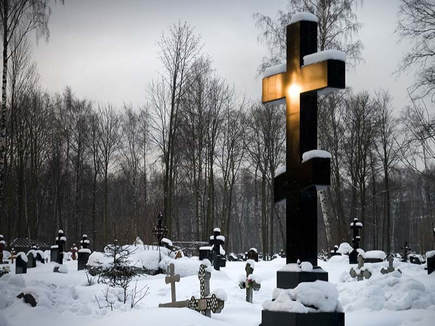
Winter inside the Church and the hope of Christmas
by Boz Tchividjian
As the dark horrors of sexual abuse finally begin to surface across all spectrums of our society, we are once again reminded that our churches are not immune from this wickedness. The #metoo and #churchtoo movements are a sobering and painful reminder that a dark winter exists inside the Church … a community that claims to follow the One who is the Light of the world.
My 20 years of confronting and addressing sexual abuse within churches and other faith organizations has convinced me that abuse within the Church will only end when professing Christians stop distorting Jesus for the purposes of excusing abusive behavior and silencing the abused. (Read Article)
by Boz Tchividjian
As the dark horrors of sexual abuse finally begin to surface across all spectrums of our society, we are once again reminded that our churches are not immune from this wickedness. The #metoo and #churchtoo movements are a sobering and painful reminder that a dark winter exists inside the Church … a community that claims to follow the One who is the Light of the world.
My 20 years of confronting and addressing sexual abuse within churches and other faith organizations has convinced me that abuse within the Church will only end when professing Christians stop distorting Jesus for the purposes of excusing abusive behavior and silencing the abused. (Read Article)
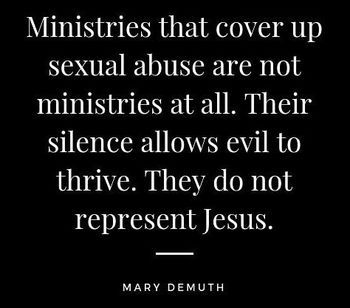
When We Neglect the Millstone, We Casts Stones at the Survivor
by Mary DeMuth
“Ministries that cover up sexual abuse are not ministries at all. Their silence allows evil to thrive. They do not represent Jesus.” I posted this quote recently, and I received many positive comments. But one of the comments put a burr in my saddle.
The person wrote: “Correct , but we are not to be the judge…..Bible Says So….one day all Knees will Bow , let he who is without Sin cast the first stone , better put that energy into making real changes.[sic]”
I would argue against this, as you can imagine, but not just because I feel like I should, but because this idea actually does not represent biblical theology. It’s cliche-throwing at best. (Read Article)
by Mary DeMuth
“Ministries that cover up sexual abuse are not ministries at all. Their silence allows evil to thrive. They do not represent Jesus.” I posted this quote recently, and I received many positive comments. But one of the comments put a burr in my saddle.
The person wrote: “Correct , but we are not to be the judge…..Bible Says So….one day all Knees will Bow , let he who is without Sin cast the first stone , better put that energy into making real changes.[sic]”
I would argue against this, as you can imagine, but not just because I feel like I should, but because this idea actually does not represent biblical theology. It’s cliche-throwing at best. (Read Article)

5 Ways You Might Be Enabling Abuse in the Church
by Kristy Burmeister
When we look at an abuse case, it’s easy to make the mistake of believing there are only two parties involved: the predator and the victim. But there’s a third party who is often present: the bystander.
We put most of the burden of stopping predators onto the shoulders of their victims. We demand an already vulnerable person report their abuse and go through that grueling (and often spiritually and psychological damaging) process with very little hope of a positive outcome.
Sometimes it all seems hopeless, but there are plenty of things bystanders can do to create an environment where abusers can’t hide.
If you’re doing any of these things, I encourage you to reflect on what sort of impact those actions have. (See Article)
by Kristy Burmeister
When we look at an abuse case, it’s easy to make the mistake of believing there are only two parties involved: the predator and the victim. But there’s a third party who is often present: the bystander.
We put most of the burden of stopping predators onto the shoulders of their victims. We demand an already vulnerable person report their abuse and go through that grueling (and often spiritually and psychological damaging) process with very little hope of a positive outcome.
Sometimes it all seems hopeless, but there are plenty of things bystanders can do to create an environment where abusers can’t hide.
If you’re doing any of these things, I encourage you to reflect on what sort of impact those actions have. (See Article)

Abusers become more brazen when they are suspected of abuse
by Jimmy Hinton
Pedophile abusers are not intimidated by church policies or accountability partners and will not refrain from abusing kids simply because a handful of people are “keeping an eye” on them. When they are in the church, they are primed for abuse and will strike again. Churches have made a fatal theological mistake by not calling wolves by the proper name and this, in my opinion, is a leading reason why churches continue to be one of the most dangerous places for our youth. Churches mistakenly accept wolves as if they were sheep and give them exactly what they seek to devour. The Bible rightly distinguishes wolves from sheep because wolves are inherently intent on feasting on their prey. A wolf does not get better–he or she gets smarter. Wolves do not convert into sheep. They are, by nature, predators and predators blend in to the flock of prey exceptionally well. Read Article
by Jimmy Hinton
Pedophile abusers are not intimidated by church policies or accountability partners and will not refrain from abusing kids simply because a handful of people are “keeping an eye” on them. When they are in the church, they are primed for abuse and will strike again. Churches have made a fatal theological mistake by not calling wolves by the proper name and this, in my opinion, is a leading reason why churches continue to be one of the most dangerous places for our youth. Churches mistakenly accept wolves as if they were sheep and give them exactly what they seek to devour. The Bible rightly distinguishes wolves from sheep because wolves are inherently intent on feasting on their prey. A wolf does not get better–he or she gets smarter. Wolves do not convert into sheep. They are, by nature, predators and predators blend in to the flock of prey exceptionally well. Read Article

#ChurchToo: How can we prevent the abuse of women by the clergy?
by Lea Karen Kivi
Much attention has been paid in recent years to the horrific sexual abuse of minors in the church, and rightly so. But many men and women who experienced sexual abuse by members of the clergy in adulthood have yet to receive compassionate acknowledgment of the harm they have suffered. Regardless of the age at which sexual abuse by clergy was experienced, churches of all denominations have a long distance to travel in setting up healing ministries for and with survivors.
According to the late A. W. Richard Sipe, the sexual exploitation of women by priests is not uncommon. Other researchers have argued that misconduct by clerics toward women is even more prevalent than their sexual abuse of children. According to research cited in When Pastors Prey, a publication of the World Council of Churches, 90 to 95 percent of victims of clergy sexual exploitation are women. This book also cites a 1984 survey of clergy in various Protestant denominations that found that 39 percent admitted to having sexual contact with a congregant and 12.7 percent had had sexual intercourse with a congregant. Read Article
by Lea Karen Kivi
Much attention has been paid in recent years to the horrific sexual abuse of minors in the church, and rightly so. But many men and women who experienced sexual abuse by members of the clergy in adulthood have yet to receive compassionate acknowledgment of the harm they have suffered. Regardless of the age at which sexual abuse by clergy was experienced, churches of all denominations have a long distance to travel in setting up healing ministries for and with survivors.
According to the late A. W. Richard Sipe, the sexual exploitation of women by priests is not uncommon. Other researchers have argued that misconduct by clerics toward women is even more prevalent than their sexual abuse of children. According to research cited in When Pastors Prey, a publication of the World Council of Churches, 90 to 95 percent of victims of clergy sexual exploitation are women. This book also cites a 1984 survey of clergy in various Protestant denominations that found that 39 percent admitted to having sexual contact with a congregant and 12.7 percent had had sexual intercourse with a congregant. Read Article

How to Confront a Toxic Pastor in a Toxic Church
by F. Remy Diederich
There are many toxic pastors and toxic churches in the world today. It’s sad that so many people are being hurt by them. It’s so contrary to what they are called to do. And yes, they DO need to be confronted. I’ve had to do my share of it over the years.
Traits of a Toxic Pastor
Thom Ranier is a church consultant who has quantified Fourteen Symptoms of a Toxic Leader. Here are a few symptoms that come to my mind: a toxic pastor…
Read More
by F. Remy Diederich
There are many toxic pastors and toxic churches in the world today. It’s sad that so many people are being hurt by them. It’s so contrary to what they are called to do. And yes, they DO need to be confronted. I’ve had to do my share of it over the years.
Traits of a Toxic Pastor
Thom Ranier is a church consultant who has quantified Fourteen Symptoms of a Toxic Leader. Here are a few symptoms that come to my mind: a toxic pastor…
- manipulates people to promote their personal agenda
- dodges, deflects, or rejects criticism
- consistently rationalizes and minimizes their negative behavior
- intimidates people with their biblical and persuasive arguments
- twists scripture to support his or her claims
- turns criticism back on the person who confronts them, shutting them down
- shields himself or herself from critics and marginalizes them
- insists on their agenda despite the concerns of others.
- justifies their agenda by saying that “God told them.”
Read More

How the Church messed up-- and can redeem-- its #MeToo movement
The Church is in the midst of a #MeToo tidal wave that has taken down some of the United States’ strongest evangelical institutions. The sexual abuse scandals and cover-ups that once, and now again, plagued the Catholic Church, are forcing evangelicals to see a systemic rot hiding behind church walls.
For his dissertation, Wade Mullen, the director of the M.Div. program at Capital Seminary & Graduate School, collected reports of evangelical ministers charged with a crime in order to understand how the organizations respond to crisis. During 2016 and 2017, Mullen found 192 instances of a leader from an influential church or institution being publicly charged with sexual crimes involving a minor, including rape, molestation, battery and child pornography.
A 2007 report from the three largest insurers of American churches and Christian nonprofits showed they received approximately 260 claims of sexual abuse against a minor each year. Read More
The Church is in the midst of a #MeToo tidal wave that has taken down some of the United States’ strongest evangelical institutions. The sexual abuse scandals and cover-ups that once, and now again, plagued the Catholic Church, are forcing evangelicals to see a systemic rot hiding behind church walls.
For his dissertation, Wade Mullen, the director of the M.Div. program at Capital Seminary & Graduate School, collected reports of evangelical ministers charged with a crime in order to understand how the organizations respond to crisis. During 2016 and 2017, Mullen found 192 instances of a leader from an influential church or institution being publicly charged with sexual crimes involving a minor, including rape, molestation, battery and child pornography.
A 2007 report from the three largest insurers of American churches and Christian nonprofits showed they received approximately 260 claims of sexual abuse against a minor each year. Read More

What Not to Say to Someone Who's Been Hurt by the Church
by Jonathan Hollingsworth
A few years ago, I had my first experience with spiritual abuse.
Compelled to serve God in a radical way, I dropped out of college, gave away all my possessions and moved to Africa, only to be manipulated, controlled and taken advantage of by the leaders in the mission organization.
When I got home, my pastor gave me two options: I could either lie and make up a nicer-sounding story, or I could just keep my mouth shut. Either way, I was forbidden from telling the real story, inside or outside the church.
I couldn’t believe what I was hearing. It’s one thing to be abused by people you barely know, but it’s another thing to be betrayed by someone you trusted and looked up to. I was angry and depressed, and I fell away from church for the first time in my life.
Thankfully, some of my friends understood what I was going through. Others, not so much. But what I’ve come to realize is that Christians can be pretty bad at handling spiritual abuse.
Many of the responses below I’ve witnessed firsthand. In the past, I’ve even been guilty of saying a few of these myself.
Here are a few things not to say to someone who has been hurt by their church: Read More
by Jonathan Hollingsworth
A few years ago, I had my first experience with spiritual abuse.
Compelled to serve God in a radical way, I dropped out of college, gave away all my possessions and moved to Africa, only to be manipulated, controlled and taken advantage of by the leaders in the mission organization.
When I got home, my pastor gave me two options: I could either lie and make up a nicer-sounding story, or I could just keep my mouth shut. Either way, I was forbidden from telling the real story, inside or outside the church.
I couldn’t believe what I was hearing. It’s one thing to be abused by people you barely know, but it’s another thing to be betrayed by someone you trusted and looked up to. I was angry and depressed, and I fell away from church for the first time in my life.
Thankfully, some of my friends understood what I was going through. Others, not so much. But what I’ve come to realize is that Christians can be pretty bad at handling spiritual abuse.
Many of the responses below I’ve witnessed firsthand. In the past, I’ve even been guilty of saying a few of these myself.
Here are a few things not to say to someone who has been hurt by their church: Read More
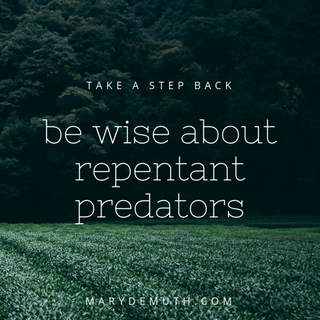
Be Wise About Repentant Predators
by Mary DeMuth
We’ve possibly grown numb to the cavalcade of abuse allegations both within and outside the church. Recently the Grand Jury investigation in Pennsylvania went public. Willow Creek is reeling in the aftermath of allegations against its founder, Bill Hybels. A well known missions agency is dealing with one woman’s painful story of one of their own. Last week, Publisher’s Weekly posted a story about sexual harassment allegedly happening in Christian writing conferences. If you would like to see a microcosm of the brokenness of the church, simply read the comments on that post or many like it. (And be assured, this is just one story of many, repeated in many industries, associations, churches and ministries).
But I’m even more over the well-articulated repentances of caught offenders. We must remember a few things about serial sexual predators. Read Article
by Mary DeMuth
We’ve possibly grown numb to the cavalcade of abuse allegations both within and outside the church. Recently the Grand Jury investigation in Pennsylvania went public. Willow Creek is reeling in the aftermath of allegations against its founder, Bill Hybels. A well known missions agency is dealing with one woman’s painful story of one of their own. Last week, Publisher’s Weekly posted a story about sexual harassment allegedly happening in Christian writing conferences. If you would like to see a microcosm of the brokenness of the church, simply read the comments on that post or many like it. (And be assured, this is just one story of many, repeated in many industries, associations, churches and ministries).
But I’m even more over the well-articulated repentances of caught offenders. We must remember a few things about serial sexual predators. Read Article

What is Your Role as a Christian in the #METOO Movement by Trillia Newbell
We are in a significant moment in our society because of the #MeToo and #ChurchToo movements. People are coming forward about suffering abuse at the hands of others. What has been a private, quiet, and likely agonizing reality for thousands of men and women dealing with the trauma associated with sexual assault for many years is coming to light. What we know now cannot be ignored. How should you and I process this moment as laypeople? What should we say and do when a friend shares she* has been sexually assaulted? I am not a psychologist, but I am a survivor, and I offer six ways we as ordinary laypeople can think through and take action in the #MeToo era. Read Article
We are in a significant moment in our society because of the #MeToo and #ChurchToo movements. People are coming forward about suffering abuse at the hands of others. What has been a private, quiet, and likely agonizing reality for thousands of men and women dealing with the trauma associated with sexual assault for many years is coming to light. What we know now cannot be ignored. How should you and I process this moment as laypeople? What should we say and do when a friend shares she* has been sexually assaulted? I am not a psychologist, but I am a survivor, and I offer six ways we as ordinary laypeople can think through and take action in the #MeToo era. Read Article

Growing Trust
by Heidi De Jonge
I imagine that the word “trust” calls up all sorts of thoughts and feelings, especially when you intersect those thoughts and feelings with the life of the church—megachurches like Willow, global institutions like the Roman Catholic Church, or your 200-member congregation a few blocks away.
I don’t know what it is like to be you, but when I think of ‘trust’ in my life, the first things I want to say are these: Because I am human and live in a real and broken world, I have trusted people and regretted it, and I have withheld trust from those who didn’t deserve my withholding. Because I am human and live in a real and broken world, I have broken the trust of those who have given their trust to me and I have had trust withheld from me for reasons that I do not know or understand. Read Article
by Heidi De Jonge
I imagine that the word “trust” calls up all sorts of thoughts and feelings, especially when you intersect those thoughts and feelings with the life of the church—megachurches like Willow, global institutions like the Roman Catholic Church, or your 200-member congregation a few blocks away.
I don’t know what it is like to be you, but when I think of ‘trust’ in my life, the first things I want to say are these: Because I am human and live in a real and broken world, I have trusted people and regretted it, and I have withheld trust from those who didn’t deserve my withholding. Because I am human and live in a real and broken world, I have broken the trust of those who have given their trust to me and I have had trust withheld from me for reasons that I do not know or understand. Read Article

When Pastors are Sexual Abuse Survivors
by Joshua Pease
It took me 20 years to acknowledge I’d been molested in sixth grade. I’d always had a memory of the molestation, but it was fuzzy, distant, and I had no category to place it in. Thank God it wasn’t worse, I thought, or that could have really messed me up.
Eleven years into ministry, I emotionally imploded. My newborn son wasn’t sleeping or breastfeeding. My wife had postpartum anxiety, and we fought constantly. My home felt like a scary, overwhelming place, where more was demanded of me than I could provide. I distanced myself from a wife who only wanted a husband who would say, “It’ll all be okay.” That’s typical of sexual abuse survivors: we’re terrified of emotional threats, and we hide from feelings that overwhelm us. How could I tell her everything would be okay when I was barely keeping the panic in my heart at bay? Read More
by Joshua Pease
It took me 20 years to acknowledge I’d been molested in sixth grade. I’d always had a memory of the molestation, but it was fuzzy, distant, and I had no category to place it in. Thank God it wasn’t worse, I thought, or that could have really messed me up.
Eleven years into ministry, I emotionally imploded. My newborn son wasn’t sleeping or breastfeeding. My wife had postpartum anxiety, and we fought constantly. My home felt like a scary, overwhelming place, where more was demanded of me than I could provide. I distanced myself from a wife who only wanted a husband who would say, “It’ll all be okay.” That’s typical of sexual abuse survivors: we’re terrified of emotional threats, and we hide from feelings that overwhelm us. How could I tell her everything would be okay when I was barely keeping the panic in my heart at bay? Read More

More on #Churchtoo: Q & A with Jimmy Hinton on Sexual Abuse in Churches
by Bobby Ross Jr
For Jimmy Hinton, there was no question: He had to do the right thing, even though it meant turning in his own father. In 2011, a woman confided to Hinton that his father, John Hinton — who spent 27 years as the preacher at the Somerset Church of Christ in Pennsylvania — had sexually abused her when she was a young girl. That report prompted an investigation that resulted in the pedophile preacher, now 69, pleading guilty to sexually assaulting and taking nude photographs of four young girls, ages 4 to 7. While his father serves a 30- to 60-year sentence at a state prison, Jimmy Hinton works to create awareness far beyond Somerset.
In an interview with the The Christian Chronicle,Hinton discussed social media advocacy, the sexual abuse problem and steps churches can take to prevent abuse. Read Article
by Bobby Ross Jr
For Jimmy Hinton, there was no question: He had to do the right thing, even though it meant turning in his own father. In 2011, a woman confided to Hinton that his father, John Hinton — who spent 27 years as the preacher at the Somerset Church of Christ in Pennsylvania — had sexually abused her when she was a young girl. That report prompted an investigation that resulted in the pedophile preacher, now 69, pleading guilty to sexually assaulting and taking nude photographs of four young girls, ages 4 to 7. While his father serves a 30- to 60-year sentence at a state prison, Jimmy Hinton works to create awareness far beyond Somerset.
In an interview with the The Christian Chronicle,Hinton discussed social media advocacy, the sexual abuse problem and steps churches can take to prevent abuse. Read Article
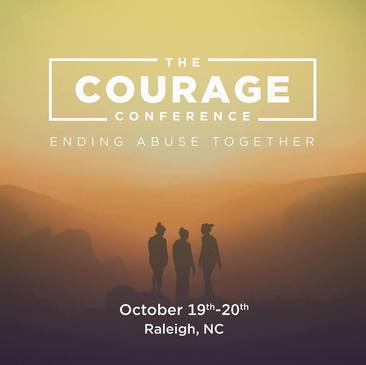
Abuse: Would Your Church Cover It Up? Three Questions That Can Help You Anticipate Your Church's Response to Sexual Abuse
by Ashley Easter
It seems that every few days a new story of abuse in the church is released. No denomination has been untouched in the wake of this epidemic. As a survivor and professional victim advocate, I welcome the light that is being shone on the abuse of the vulnerable. Only light can dispel the darkness.
As painful as it may be, I truly believe the #ChurchToo movement is a reckoning that has been orchestrated by God. It is an opportunity for the Church of Jesus Christ to confess, repent of its crimes and sins, and turn its efforts once again towards the ways of Jesus.
With the mounting abuse disclosures and examples of churches poorly responding to the abuse within their midst, it is only natural for churchgoers to ask questions like:
by Ashley Easter
It seems that every few days a new story of abuse in the church is released. No denomination has been untouched in the wake of this epidemic. As a survivor and professional victim advocate, I welcome the light that is being shone on the abuse of the vulnerable. Only light can dispel the darkness.
As painful as it may be, I truly believe the #ChurchToo movement is a reckoning that has been orchestrated by God. It is an opportunity for the Church of Jesus Christ to confess, repent of its crimes and sins, and turn its efforts once again towards the ways of Jesus.
With the mounting abuse disclosures and examples of churches poorly responding to the abuse within their midst, it is only natural for churchgoers to ask questions like:
- “Is my church a safe haven for victims or predators?”
- “How will my church leaders respond to abuse disclosure?”
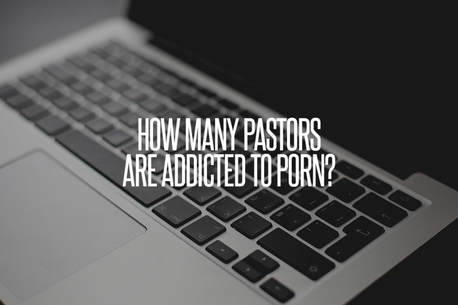
How Many Pastors are Addicted to Porn?
The Stats are Surprising
by Bo Lane
It probably won’t come as much of a surprise to you when I say that the porn industry generates about $13 billion each year in the United States. It’s a heartbreaking reality that 9 out of 10 boys and 6 out of 10 girls have been exposed to pornography before the age of 18; the average age of first exposure is about 11 years old. And that men are 543% more likely to look at porn than women.
Unfortunately, the secret is out. It’s become a sad reality that our world is obsessed with sex and pornography. And it’s not just a problem with those in the world but also those who consider themselves not of this world. A survey taken at a Promise Keepers rally revealed that over 50% of the men in attendance were involved with pornography within one week of attending the event. And that was 20 years ago. Fifty percent of Christian men and 20% of Christian women say they are addicted to pornography. And the most popular day of the week for viewing porn is Sunday. Read Article
The Stats are Surprising
by Bo Lane
It probably won’t come as much of a surprise to you when I say that the porn industry generates about $13 billion each year in the United States. It’s a heartbreaking reality that 9 out of 10 boys and 6 out of 10 girls have been exposed to pornography before the age of 18; the average age of first exposure is about 11 years old. And that men are 543% more likely to look at porn than women.
Unfortunately, the secret is out. It’s become a sad reality that our world is obsessed with sex and pornography. And it’s not just a problem with those in the world but also those who consider themselves not of this world. A survey taken at a Promise Keepers rally revealed that over 50% of the men in attendance were involved with pornography within one week of attending the event. And that was 20 years ago. Fifty percent of Christian men and 20% of Christian women say they are addicted to pornography. And the most popular day of the week for viewing porn is Sunday. Read Article

Confronting the Toxic Power in Me
by Jamin Goggin and Kyle Strobel
In our early years of ministry, the Lord began to show us the problem of power wasn’t just “out there,” at those megachurches and in those celebrity pastors. It was “in here,” within our own hearts. It turned out I (Jamin) was just as tempted to wield my talents and abilities to wow the crowd in my youth group of 40 students as a celebrity pastor on video screens at multiple venues.
Toxic power is not bigoted; it cuts across all socioeconomic, racial, and denominational lines. It does not focus its attention only on obviously powerful pastors. It is an equal opportunist. It crouches at the door of every church, regardless of Sunday morning attendance. If you are a pastor, you will be tempted to embrace toxic forms of power in ministry. Read Full Article
by Jamin Goggin and Kyle Strobel
In our early years of ministry, the Lord began to show us the problem of power wasn’t just “out there,” at those megachurches and in those celebrity pastors. It was “in here,” within our own hearts. It turned out I (Jamin) was just as tempted to wield my talents and abilities to wow the crowd in my youth group of 40 students as a celebrity pastor on video screens at multiple venues.
Toxic power is not bigoted; it cuts across all socioeconomic, racial, and denominational lines. It does not focus its attention only on obviously powerful pastors. It is an equal opportunist. It crouches at the door of every church, regardless of Sunday morning attendance. If you are a pastor, you will be tempted to embrace toxic forms of power in ministry. Read Full Article

Out in the Light:
Why Expose the Church's Most Shameful Sins
by Sophia Lee
Last week, WORLD Magazine published an investigative report on sexual abuse in Protestant churches, a three-part special section showing the problem’s severity and prevalence even within evangelical circles.
Sin, of course, knows no boundaries. Sexual abuse is not merely a Catholic problem or a Protestant problem, but a miserably human one. There’s nothing new about physical, emotional, and spiritual abuse, “for all have sinned and fall short of the glory of God.” Yet ... oh, the disappointment! How it stings, especially when in some of these cases, it’s apparent the church deliberately chose to ignore or minimize the abuse rather than expose and uproot it. Read Article
Why Expose the Church's Most Shameful Sins
by Sophia Lee
Last week, WORLD Magazine published an investigative report on sexual abuse in Protestant churches, a three-part special section showing the problem’s severity and prevalence even within evangelical circles.
Sin, of course, knows no boundaries. Sexual abuse is not merely a Catholic problem or a Protestant problem, but a miserably human one. There’s nothing new about physical, emotional, and spiritual abuse, “for all have sinned and fall short of the glory of God.” Yet ... oh, the disappointment! How it stings, especially when in some of these cases, it’s apparent the church deliberately chose to ignore or minimize the abuse rather than expose and uproot it. Read Article

How Willow Creek Exposed Our Sins
by Kyle Strobel & Jamin Goggin
The past few months have been filled with stories of pastoral failure — for Protestants and Catholics alike. These stories inundate our social media feeds, causing outrage and heartache but rarely self-reflection.
Once in a while, however, a story hits close to home. That’s been the case for us with Willow Creek.
For my (Kyle) entire childhood, Willow Creek was my church home. I found Jesus there. My whole family came to know the Lord there. My father pastored there. I worshipped God, grew in the faith, and wrestled through his call on my life in that place.
Read Article
by Kyle Strobel & Jamin Goggin
The past few months have been filled with stories of pastoral failure — for Protestants and Catholics alike. These stories inundate our social media feeds, causing outrage and heartache but rarely self-reflection.
Once in a while, however, a story hits close to home. That’s been the case for us with Willow Creek.
For my (Kyle) entire childhood, Willow Creek was my church home. I found Jesus there. My whole family came to know the Lord there. My father pastored there. I worshipped God, grew in the faith, and wrestled through his call on my life in that place.
Read Article
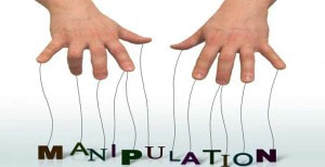
Manipulative Repentence: 8 Red Flags Phrases
by Brad Hambrick
The recognition that there are healthy and unhealthy forms of repentance is both common sense and biblical (2 Corinthians 7:8-13). On this everyone agrees; secular and sacred. The difficulty is in discerning disingenuous repentance. Mature and discerning people can witness the same conversation and walk away with distinctly different impressions about whether a given expression of remorse represents genuine repentance, sorrow for being caught, or a tactic to gain relational leverage.
In this post, I hope to accomplish two things. First, I will attempt to clarify two common misperceptions about manipulation. Second, I will discuss a series of phrases commonly used in repentance which can be red flags that the remorse being expressed will not lead to healthy relational restoration. Read More
by Brad Hambrick
The recognition that there are healthy and unhealthy forms of repentance is both common sense and biblical (2 Corinthians 7:8-13). On this everyone agrees; secular and sacred. The difficulty is in discerning disingenuous repentance. Mature and discerning people can witness the same conversation and walk away with distinctly different impressions about whether a given expression of remorse represents genuine repentance, sorrow for being caught, or a tactic to gain relational leverage.
In this post, I hope to accomplish two things. First, I will attempt to clarify two common misperceptions about manipulation. Second, I will discuss a series of phrases commonly used in repentance which can be red flags that the remorse being expressed will not lead to healthy relational restoration. Read More
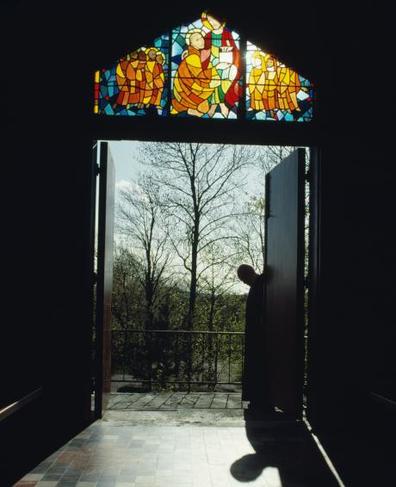
To Prevent Abuse and Coverups, the Church Needs to Empower Laypeople
by Sean Rowe
Although the channels through which authority is exercised in denominations varies, most clergy are taught some version of the idea that the church is an institution ordained by God to do God’s saving work in the world. This belief sometimes leads the church’s leaders to protect its reputation at the expense of a more fundamental Christian call to tell the truth. When clergy are confronted with abuse and cover-ups committed by colleagues, mentors and friends, the urge to keep the institution’s secrets—to pray for forgiveness rather than taking action—is powerful. Like corporations, churches hide abuse to preserve money and reputation, but the problem goes beyond that. The church refuses to confess its transgressions because it believes that to do so would compromise its ability to carry out God’s mission in the world and would reveal it to be a human institution that is not immune to human sinfulness.
Read Full Article
by Sean Rowe
Although the channels through which authority is exercised in denominations varies, most clergy are taught some version of the idea that the church is an institution ordained by God to do God’s saving work in the world. This belief sometimes leads the church’s leaders to protect its reputation at the expense of a more fundamental Christian call to tell the truth. When clergy are confronted with abuse and cover-ups committed by colleagues, mentors and friends, the urge to keep the institution’s secrets—to pray for forgiveness rather than taking action—is powerful. Like corporations, churches hide abuse to preserve money and reputation, but the problem goes beyond that. The church refuses to confess its transgressions because it believes that to do so would compromise its ability to carry out God’s mission in the world and would reveal it to be a human institution that is not immune to human sinfulness.
Read Full Article

Divisions, Deceptions and Disease
by Diane Langberg
John Baillie, in his book A Diary of Private Prayer, wrote this: “Grant that my part in this world’s life today might not be to obscure the splendor of your presence but rather to make it more plainly visible in the eyes of men.” I fear that we as the body of Christ today are doing much to obscure the splendor of the presence of God in our midst. I have been reading Paul’s letters to the Corinthians and been struck by their relevance to the present day church.
Corinth was a great city in the Roman Empire. It was wealthy and lustful. It was known for the clever arguments of its resident philosophers. The delivery of such arguments was of the highest form and it was the center of all things intellectual. The city was also rotten at its core, corrupt and lewd. The body of Christians in that city were meant to be characterized by righteousness, sanctity and the fruits of redemption. Instead they had taken God’s name while departing from him and his ways, gathering around their own views and ideas. They were centered on the philosophies of the hour and created within the church schisms based on opinions. They were focused on the material, having lost their understanding of the spiritual. There was moral failure in the church, as wrong thinking easily leads to wrong doing. The sin in their midst was ignored, covered up and they failed to deal with it by bringing it to the light and grieving over it. Sound uncomfortably familiar? Read More
by Diane Langberg
John Baillie, in his book A Diary of Private Prayer, wrote this: “Grant that my part in this world’s life today might not be to obscure the splendor of your presence but rather to make it more plainly visible in the eyes of men.” I fear that we as the body of Christ today are doing much to obscure the splendor of the presence of God in our midst. I have been reading Paul’s letters to the Corinthians and been struck by their relevance to the present day church.
Corinth was a great city in the Roman Empire. It was wealthy and lustful. It was known for the clever arguments of its resident philosophers. The delivery of such arguments was of the highest form and it was the center of all things intellectual. The city was also rotten at its core, corrupt and lewd. The body of Christians in that city were meant to be characterized by righteousness, sanctity and the fruits of redemption. Instead they had taken God’s name while departing from him and his ways, gathering around their own views and ideas. They were centered on the philosophies of the hour and created within the church schisms based on opinions. They were focused on the material, having lost their understanding of the spiritual. There was moral failure in the church, as wrong thinking easily leads to wrong doing. The sin in their midst was ignored, covered up and they failed to deal with it by bringing it to the light and grieving over it. Sound uncomfortably familiar? Read More

Encourage Your Anger by Paul David Tripp
When was the last time you experienced anger? You probably won’t need to rewind the clock very far back to recall your most recent moment.
Was your anger ugly? Did you say or do something that you now regret? Do you wish that you could rewind the clock and erase words and actions from the ears and eyes of your spouse, children, friends, neighbors or co-workers?
Today I want to do something that may sound counterintuitive: I want to encourage your anger. That is, only if your anger is going to be about something bigger than you. Read Article
When was the last time you experienced anger? You probably won’t need to rewind the clock very far back to recall your most recent moment.
Was your anger ugly? Did you say or do something that you now regret? Do you wish that you could rewind the clock and erase words and actions from the ears and eyes of your spouse, children, friends, neighbors or co-workers?
Today I want to do something that may sound counterintuitive: I want to encourage your anger. That is, only if your anger is going to be about something bigger than you. Read Article

Max Lucado: Priests, pastors and pain; three words that shouldn’t share the same sentence.
Priests, pastors and pain; three words that shouldn’t share the same sentence. Priests, pastors and hope? Yes. Priests, pastors and healing? By all means. But to learn of scandals perpetrated beneath the steeple; deception in the church rather than instruction? It takes its toll on the heartiest of souls.
Whether the perpetrator be a priest, a pastor, a rabbi or an evangelical leader, the struggle is a real one. When those who promised to nurture my soul bruised it, when those committed to taking care of me took advantage of me, how do I respond?
Even deeper, at risk is our faith in God; if not His existence, at least His goodness. How could God allow this to happen? To be clear (and we must strive to be clear), God has strong words for pastors who purvey pain upon His people. Read Article
Priests, pastors and pain; three words that shouldn’t share the same sentence. Priests, pastors and hope? Yes. Priests, pastors and healing? By all means. But to learn of scandals perpetrated beneath the steeple; deception in the church rather than instruction? It takes its toll on the heartiest of souls.
Whether the perpetrator be a priest, a pastor, a rabbi or an evangelical leader, the struggle is a real one. When those who promised to nurture my soul bruised it, when those committed to taking care of me took advantage of me, how do I respond?
Even deeper, at risk is our faith in God; if not His existence, at least His goodness. How could God allow this to happen? To be clear (and we must strive to be clear), God has strong words for pastors who purvey pain upon His people. Read Article

Prophecy Against the Shepherds of Israel
(Ezekiel 34:1-10 NASB)
Then the word of the Lord came to me saying, “Son of man, prophesy against the shepherds of Israel. Prophesy and say to those shepherds, ‘Thus says the Lord God, “Woe, shepherds of Israel who have been feeding themselves! Should not the shepherds feed the flock? You eat the fat and clothe yourselves with the wool, you slaughter the fat sheep without feeding the flock. Those who are sickly you have not strengthened, the diseased you have not healed, the broken you have not bound up, the scattered you have not brought back, nor have you sought for the lost; but with force and with severity you have dominated them. They were scattered for lack of a shepherd, and they became food for every beast of the field and were scattered. My flock wandered through all the mountains and on every high hill; My flock was scattered over all the surface of the earth, and there was no one to search or seek for them.”’”
Therefore, you shepherds, hear the word of the Lord: “As I live,” declares the Lord God, “surely because My flock has become a prey, My flock has even become food for all the beasts of the field for lack of a shepherd, and My shepherds did not search for My flock, but rather the shepherds fed themselves and did not feed My flock; therefore, you shepherds, hear the word of the Lord: ‘Thus says the Lord God, “Behold, I am against the shepherds, and I will demand My sheep from them and make them cease from feeding sheep. So the shepherds will not feed themselves anymore, but I will deliver My flock from their mouth, so that they will not be food for them.”’”
(Ezekiel 34:1-10 NASB)
Then the word of the Lord came to me saying, “Son of man, prophesy against the shepherds of Israel. Prophesy and say to those shepherds, ‘Thus says the Lord God, “Woe, shepherds of Israel who have been feeding themselves! Should not the shepherds feed the flock? You eat the fat and clothe yourselves with the wool, you slaughter the fat sheep without feeding the flock. Those who are sickly you have not strengthened, the diseased you have not healed, the broken you have not bound up, the scattered you have not brought back, nor have you sought for the lost; but with force and with severity you have dominated them. They were scattered for lack of a shepherd, and they became food for every beast of the field and were scattered. My flock wandered through all the mountains and on every high hill; My flock was scattered over all the surface of the earth, and there was no one to search or seek for them.”’”
Therefore, you shepherds, hear the word of the Lord: “As I live,” declares the Lord God, “surely because My flock has become a prey, My flock has even become food for all the beasts of the field for lack of a shepherd, and My shepherds did not search for My flock, but rather the shepherds fed themselves and did not feed My flock; therefore, you shepherds, hear the word of the Lord: ‘Thus says the Lord God, “Behold, I am against the shepherds, and I will demand My sheep from them and make them cease from feeding sheep. So the shepherds will not feed themselves anymore, but I will deliver My flock from their mouth, so that they will not be food for them.”’”

Three Ways Catholics Can Fight Sexual Abuse in the Church by David Clohessy
More than 30 years ago, in 1985, the church's crisis first attracted headlines across the US when an especially heinous Louisiana priest pled guilty to molesting dozens of boys. More than 16 years ago, in 2002, an unprecedented expose by The Boston Globe sparked hundreds of other news outlets to investigate US dioceses.
The result: a deluge of news accounts, victim disclosures and betrayed parishioners. Eventually church authorities were forced to admit that some 100,000 US kids have been victimized and some 6,721 priests are proven, admitted or credibly accused predators. (However, even now, bishops refuse to name 2,453 of these child molesting clerics, according to a research/archive group called BishopAccountability.org)
So Catholics are understandibly ever more irate that so much harm has been done to so many and that little seems to make their congregations healthier and safer. Read More
More than 30 years ago, in 1985, the church's crisis first attracted headlines across the US when an especially heinous Louisiana priest pled guilty to molesting dozens of boys. More than 16 years ago, in 2002, an unprecedented expose by The Boston Globe sparked hundreds of other news outlets to investigate US dioceses.
The result: a deluge of news accounts, victim disclosures and betrayed parishioners. Eventually church authorities were forced to admit that some 100,000 US kids have been victimized and some 6,721 priests are proven, admitted or credibly accused predators. (However, even now, bishops refuse to name 2,453 of these child molesting clerics, according to a research/archive group called BishopAccountability.org)
So Catholics are understandibly ever more irate that so much harm has been done to so many and that little seems to make their congregations healthier and safer. Read More
 Jesus and Judas
Jesus and Judas
Samson and Delilah: Strength After Betrayal
by Lea Karen Kivi - Angela's Heart
In the Book of Judges, chapter 16, Samson is betrayed by Delilah.
Delilah says to Samson, “I love you.”
Survivors of sexual abuse may have been told, “I love you.”
Or, “I am your doctor.”
Or, “I am your pastor.”
Or, “I am your father /mother /religious superior / spiritual director” or any number of other words implying that they could trust the person who went on to betray that trust.
Delilah sold out Samson for eleven hundred shekels of silver. She succeeded in getting Samson to reveal the most intimate secret of his heart – how he was vulnerable.
Samson’s weakness being known was exploited and, as a result, he was physically abused – maimed for life by the rulers of the Philistines.
Not only maimed, but put on display in the temple of the Philistines who celebrated how Samson had been brought down so low.
Has the way you have been treated by the ‘rulers’ in your life – Church, educational, family or other ‘authorities’ made you feel like Samson did in the temple? Maimed, mocked, abandoned? Read More
by Lea Karen Kivi - Angela's Heart
In the Book of Judges, chapter 16, Samson is betrayed by Delilah.
Delilah says to Samson, “I love you.”
Survivors of sexual abuse may have been told, “I love you.”
Or, “I am your doctor.”
Or, “I am your pastor.”
Or, “I am your father /mother /religious superior / spiritual director” or any number of other words implying that they could trust the person who went on to betray that trust.
Delilah sold out Samson for eleven hundred shekels of silver. She succeeded in getting Samson to reveal the most intimate secret of his heart – how he was vulnerable.
Samson’s weakness being known was exploited and, as a result, he was physically abused – maimed for life by the rulers of the Philistines.
Not only maimed, but put on display in the temple of the Philistines who celebrated how Samson had been brought down so low.
Has the way you have been treated by the ‘rulers’ in your life – Church, educational, family or other ‘authorities’ made you feel like Samson did in the temple? Maimed, mocked, abandoned? Read More
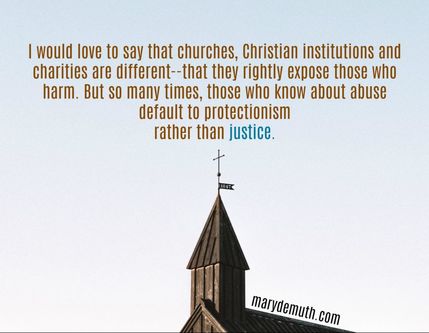
Those Who Knew and Said Nothing Are Culpable
by Mary Demuth
"Some call this gossip. Others a witch hunt. Still others force forgiveness as if it is a formula, to be performed robotically the very instant we hear of a predator’s exposure. (Otherwise we are not Christians full of grace, but I would argue this: how did Jesus refer to people who preyed on others? A millstone comes to mind, not exactly grace-oriented). Others feel a perpetrator’s job loss and loss of reputation is enough punishment. But what if we revisit Sandusky or Weinstein? Is that enough? The victims will live with violation their entire lives. (I wrote about that here). They have ached in the silent hell of it for years. Some, like Sandusky’s victim who first went on record, have to push to be heard, be exposed to ridicule and shame over and over again, and fight to be believed."
Read Full Article
by Mary Demuth
"Some call this gossip. Others a witch hunt. Still others force forgiveness as if it is a formula, to be performed robotically the very instant we hear of a predator’s exposure. (Otherwise we are not Christians full of grace, but I would argue this: how did Jesus refer to people who preyed on others? A millstone comes to mind, not exactly grace-oriented). Others feel a perpetrator’s job loss and loss of reputation is enough punishment. But what if we revisit Sandusky or Weinstein? Is that enough? The victims will live with violation their entire lives. (I wrote about that here). They have ached in the silent hell of it for years. Some, like Sandusky’s victim who first went on record, have to push to be heard, be exposed to ridicule and shame over and over again, and fight to be believed."
Read Full Article
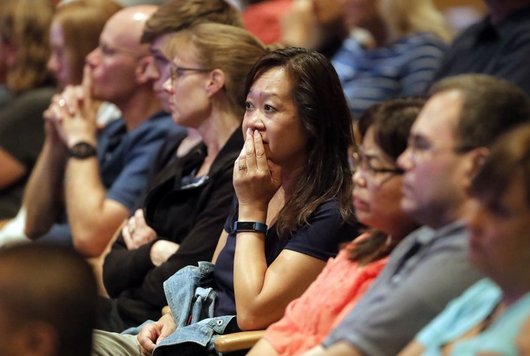
Evangelicals confront sex abuse problems in #metoo era
by David Crary
As the Roman Catholic church struggles with a new wave of clergy abuse cases, several prominent evangelical institutions have been rocked in recent weeks by their own sexual misconduct allegations against pastors and church leaders who exploited the trust they had gained from faithful churchgoers.
In many ways, the phenomenon at evangelical denominations is an offshoot of the #MeToo movement, as evidenced by the #ChurchToo hashtag accompanying accounts of church-related abuse that have been shared on Twitter. Read More...
by David Crary
As the Roman Catholic church struggles with a new wave of clergy abuse cases, several prominent evangelical institutions have been rocked in recent weeks by their own sexual misconduct allegations against pastors and church leaders who exploited the trust they had gained from faithful churchgoers.
In many ways, the phenomenon at evangelical denominations is an offshoot of the #MeToo movement, as evidenced by the #ChurchToo hashtag accompanying accounts of church-related abuse that have been shared on Twitter. Read More...

Bill Hybels and the Future of the Church After #ChurchToo
by Chuck DeGroat
Our addiction to success, to grandiosity, to winning has gone unchecked. We forgot that we were followers of a suffering servant, bearers of the Cross, participants in a cruciform story. Willow Creek became the ultimate how-to-do-it-and-succeed counterfeit story. That isn’t a knock on everything it is and was, just a gut check for every pastor who thought – why isn’t my church growing like that one is OR if only we could discover their secret formula. Again, it revealed a lot about us. If you’re reading this as a post about Hybels or Willow Creek, you’ve missed the point – this is about us. Their story reveals ours. Read More
by Chuck DeGroat
Our addiction to success, to grandiosity, to winning has gone unchecked. We forgot that we were followers of a suffering servant, bearers of the Cross, participants in a cruciform story. Willow Creek became the ultimate how-to-do-it-and-succeed counterfeit story. That isn’t a knock on everything it is and was, just a gut check for every pastor who thought – why isn’t my church growing like that one is OR if only we could discover their secret formula. Again, it revealed a lot about us. If you’re reading this as a post about Hybels or Willow Creek, you’ve missed the point – this is about us. Their story reveals ours. Read More

Our "Sin of the Bystander" Enables Sex Abuse.
We Must Change.
by Kathy Manis Findley
Telling the story of one’s sexual abuse is an excruciatingly painful act. To open the door on what may have been for years a secret is to open the door of the soul. When one lives under the heavy weight of sexual abuse, telling can exacerbate tucked-away trauma. So it is that survivors of sexual abuse or harassment keep the secret of what happened to them.
More often than not, the bystanders who surrounded them during the abuse also remained silent. Choosing to be self-appointed protectors of the status quo, they felt compelled to protect reputations, preserve relationships, ensure the good standing of the church or institution, avoid stigma, create a sense of false comfort, and minimize the truth of the victim’s abuse story.
Bystanders can no longer stand in this place of complicity. To do so is, quite simply, to sin. Read More
We Must Change.
by Kathy Manis Findley
Telling the story of one’s sexual abuse is an excruciatingly painful act. To open the door on what may have been for years a secret is to open the door of the soul. When one lives under the heavy weight of sexual abuse, telling can exacerbate tucked-away trauma. So it is that survivors of sexual abuse or harassment keep the secret of what happened to them.
More often than not, the bystanders who surrounded them during the abuse also remained silent. Choosing to be self-appointed protectors of the status quo, they felt compelled to protect reputations, preserve relationships, ensure the good standing of the church or institution, avoid stigma, create a sense of false comfort, and minimize the truth of the victim’s abuse story.
Bystanders can no longer stand in this place of complicity. To do so is, quite simply, to sin. Read More
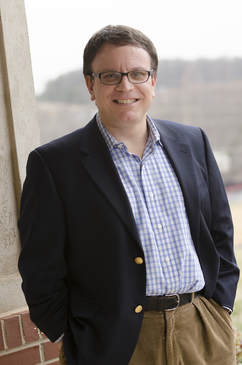
No More Silence: An Interview with Boz Tchividjian of G.R.A.C.E.
by Rachel Held Evans
Boz Tchividjian: Rachel, I want to thank you for the opportunity to be interviewed and to hopefully highlight some fundamental issues confronting today’s Church. I want to thank and acknowledge the following dear friends for giving me invaluable guidance in the preparation of these answers: Diane Langburg, Phil Monroe, Duncan Rankin, Tamara Rice, Andrew Schmutzer, and Victor Vieth. I don’t have the time or space to thank the untold number of saints who God uses to encourage and inspire me each day along this difficult, but beautiful path. Read More
Trigger Warning: child abuse, sexual abuse in a church setting
by Rachel Held Evans
Boz Tchividjian: Rachel, I want to thank you for the opportunity to be interviewed and to hopefully highlight some fundamental issues confronting today’s Church. I want to thank and acknowledge the following dear friends for giving me invaluable guidance in the preparation of these answers: Diane Langburg, Phil Monroe, Duncan Rankin, Tamara Rice, Andrew Schmutzer, and Victor Vieth. I don’t have the time or space to thank the untold number of saints who God uses to encourage and inspire me each day along this difficult, but beautiful path. Read More
Trigger Warning: child abuse, sexual abuse in a church setting

Church Related Trauma - When Church Can Trigger
by Kyle J. Howard
For those who find Sunday to be the most difficult day of the week, due to church related pain or trauma.
When you lose all your relationships in the church due to standing for what is right, even those who you thought would be life-long; it is REALLY hard to build new friendships. There can be a constant cloud of suspicion hovering over every friendly Christian you encounter.
Trauma survivors develop defense mechanisms. These defense mechanisms are 100% understandable and often necessary to protect against further trauma. When the church and Christians are the source of trauma, it can be even more challenging because it’s Christ’s bride that becomes suspect. Read More
by Kyle J. Howard
For those who find Sunday to be the most difficult day of the week, due to church related pain or trauma.
When you lose all your relationships in the church due to standing for what is right, even those who you thought would be life-long; it is REALLY hard to build new friendships. There can be a constant cloud of suspicion hovering over every friendly Christian you encounter.
Trauma survivors develop defense mechanisms. These defense mechanisms are 100% understandable and often necessary to protect against further trauma. When the church and Christians are the source of trauma, it can be even more challenging because it’s Christ’s bride that becomes suspect. Read More
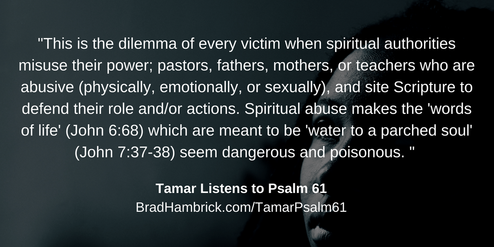
Tamar Listens to Psalm 61: A Reflection on the Impact of Misused Spiritual Authority
BY BRAD HAMBRICK
The context of Psalm 61 requires some explanation. Most scholars believe[1] Psalm was written while David was on the run for his life from his son Absalom (II Samuel 15:13-37). Absalom had killed his brother Amnon for raping their sister Tamar (II Samuel 13:1-33). Absalom killed Amnon after David, his father, did nothing to defend or seek justice for Tamar (II Samuel 13:37-39). When David did not seek justice for the murder of Amnon, Absalom saw his father as weak and began to lay the ground work for a coup (II Samuel 14:1-15:12). Again, even knowing of Absalom’s actions, David did nothing. Read More.
BY BRAD HAMBRICK
The context of Psalm 61 requires some explanation. Most scholars believe[1] Psalm was written while David was on the run for his life from his son Absalom (II Samuel 15:13-37). Absalom had killed his brother Amnon for raping their sister Tamar (II Samuel 13:1-33). Absalom killed Amnon after David, his father, did nothing to defend or seek justice for Tamar (II Samuel 13:37-39). When David did not seek justice for the murder of Amnon, Absalom saw his father as weak and began to lay the ground work for a coup (II Samuel 14:1-15:12). Again, even knowing of Absalom’s actions, David did nothing. Read More.
7 Ways Congregations Can Respond to the #MeToo Movement
By General Commission On The Status And Role Of Women
By General Commission On The Status And Role Of Women
|
The #MeToo movement has been spiritually powerful because of the overwhelming number of personal testimonies from those who have been on the receiving end of sexual misconduct. Moreover, an overwhelming and shameful number of stories of misconduct have taken place within the realm of the church. These witnesses do not allow us as the hearers, as the community of faith, to forget the human cost of the sin of sexual misconduct. Read more...
|
If a child in your life tells you that they are being sexually abused, would you know what to do?
by Laura Fogerty
by Laura Fogerty
|
What if a child in your life chooses you as his/her trusted adult? What can we do if a child reports abuse? First and foremost we can listen and believe, because the best chance for a positive outcome begins with that! With proper, early intervention, healing can, and does happen. Every day that passes between the event and the starting point of the healing process exponentially increases the power and the negativity of the abuse. Read More |
|
Diane Langberg, PhD., shares governing principles about how pastors and churches should think about life crippling abuse of any kind.
|
"I believe with all my heart, like our Lord, who was anointed to bring good news to the afflicted, to bind up the brokenhearted, and set the captives free, you and I are called to leave the comfort of our chapels and enter into the devastating suffering of those who have been shattered by evil and abuse."
"Sadly, it has taken the media and the courts to make it abundantly clear that sexual abuse is in all such places (home, schools, military, neighborhoods & churches) and has even been perpetrated or covered up by those we have held in high esteem" "As we consider the topic of abuse, we must remember that it is not a problem out there. It is among the people of our God." |

A Model Response to Abuse Allegations
Tate's Creek Presbyterian Church - A Letter from Robert Cunningham
Sunday, June 24, 2018 (republished with permission)
During the rise of the #MeToo movement, I publicly wrote the following:
"...I say let the stories come. Let them all come out. This wickedness so transcends our normal divides that the whataboutism game we play has become laughable. No matter your tribe, your tribe is guilty. So let every attempt to deflect or defend come to an end, and let us instead listen and learn from the courage of the abused. They are our prophets now, with voices that will no longer allow us to hide or ignore the epidemic. Indeed, the long overdue purge has begun, and may it not relent until every hidden darkness faces the light of justice."
I still believe that. Let it all come out. Let the purge continue undaunted. Even when it is my own church’s past that needs purging. (Read more)
Tate's Creek Presbyterian Church - A Letter from Robert Cunningham
Sunday, June 24, 2018 (republished with permission)
During the rise of the #MeToo movement, I publicly wrote the following:
"...I say let the stories come. Let them all come out. This wickedness so transcends our normal divides that the whataboutism game we play has become laughable. No matter your tribe, your tribe is guilty. So let every attempt to deflect or defend come to an end, and let us instead listen and learn from the courage of the abused. They are our prophets now, with voices that will no longer allow us to hide or ignore the epidemic. Indeed, the long overdue purge has begun, and may it not relent until every hidden darkness faces the light of justice."
I still believe that. Let it all come out. Let the purge continue undaunted. Even when it is my own church’s past that needs purging. (Read more)
 Image: robert.anthony / Lightstock
Image: robert.anthony / Lightstock
Sex Offenders Groom Churches Too
How predatory behavior goes undetected in congregations.
KIMBERLY HARRIS| JUNE 8, 2018
We don’t have the data to know how many offenders are in our churches, but what we do know is they are found in every type of position within churches. In a of sexual abuse originating in Protestant churches, out of 328 male offenders, 34.9 percent had the title of pastor, 31.4 percent were youth ministers, with associate and worship pastors, church volunteers, deacons, Bible study leaders and church members making up the rest. We should not just worry about the creepy guy in the back. Successful predators can be in positions of respect in our churches. (read more)
How predatory behavior goes undetected in congregations.
KIMBERLY HARRIS| JUNE 8, 2018
We don’t have the data to know how many offenders are in our churches, but what we do know is they are found in every type of position within churches. In a of sexual abuse originating in Protestant churches, out of 328 male offenders, 34.9 percent had the title of pastor, 31.4 percent were youth ministers, with associate and worship pastors, church volunteers, deacons, Bible study leaders and church members making up the rest. We should not just worry about the creepy guy in the back. Successful predators can be in positions of respect in our churches. (read more)
|
Q&A: We Need a Christ-Centered Theology of Trauma
As the church, we’re called to mourn with those who mourn and comfort the afflicted, but it’s not always easy walking this journey alongside our friends and family. Hermeisha Hopson, a therapist and licensed social worker with a biblical counseling background, is intimately familiar with the work of coming alongside survivors. (read more) |
|
Not So Fast: Being in the same room as children doesn’t prevent abuse and here’s why
Too often organizations are confident they are doing a good job of preventing abuse by increasing awareness, conducting background checks, and by implementing the “two deep” rule, where at least two adults are present with children at all times. The problem with this is that it doesn’t matter whether there are two or two hundred adults in the same room as children. Abusers know what to look for in us and they routinely abuse children and other adults in plain sight. (read more) Part Two. |
|
|
What's It Like Being the Daughter of a Survivor of Abuse Within the Church?
What’s it like being the daughter of a woman involved in a church scandal? That’s the question on everyone's mind, but they are too hesitant to ask. The real question should be, “What’s it like being the daughter of a survivor of abuse within the church?” Well, I’m happy to answer that question, right here, right now. It’s messy. It’s beautiful. It’s empowering. It’s scary. Read More |



